Презентация marketing concept and environment addition 1

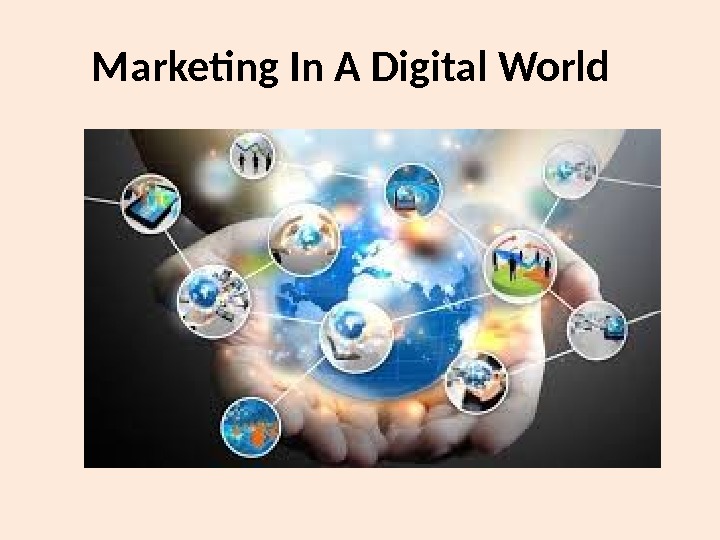
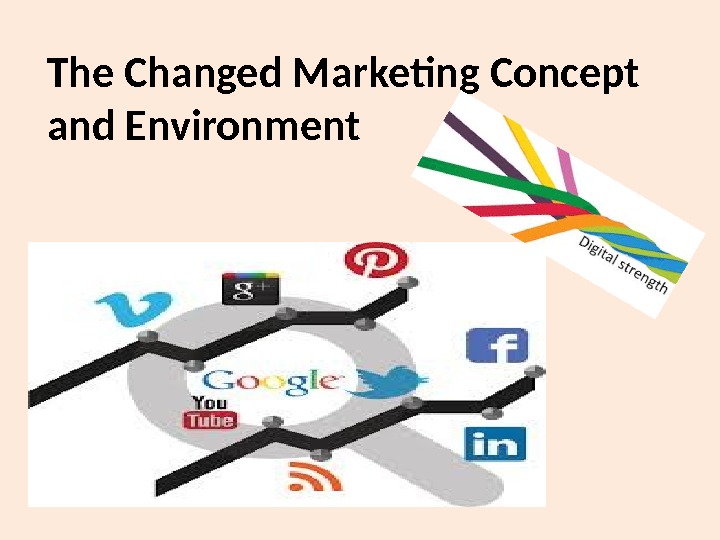
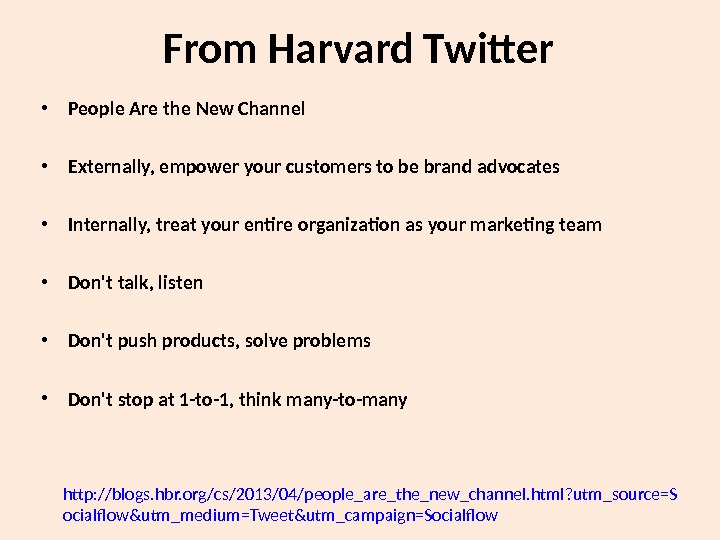
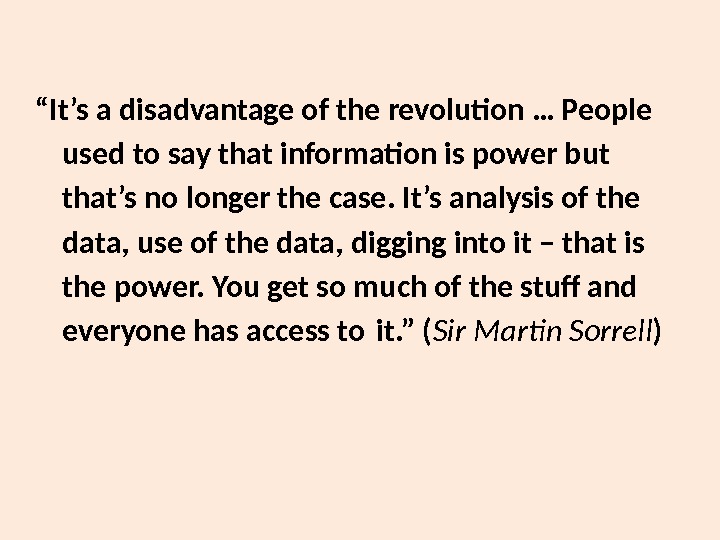
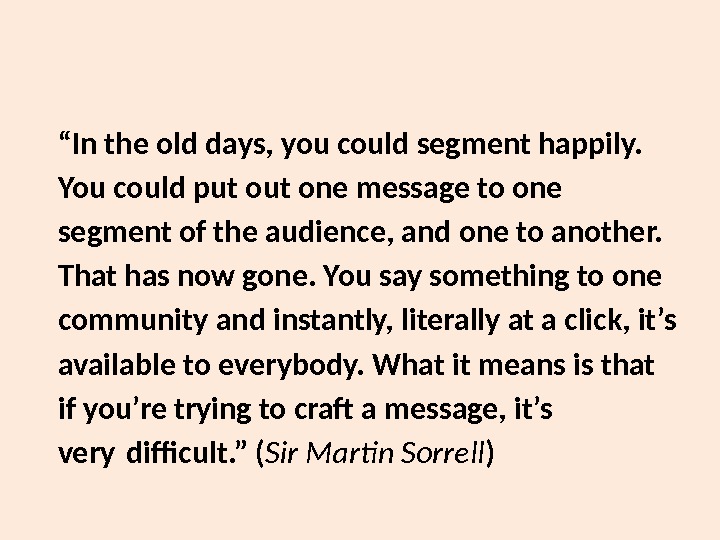
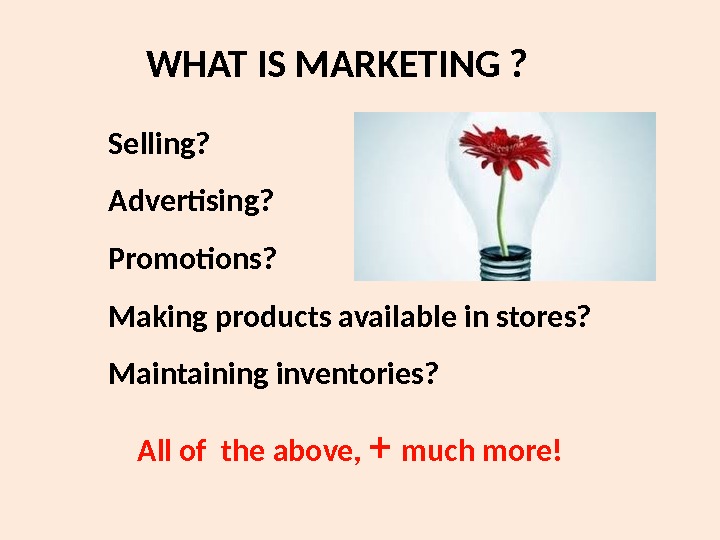
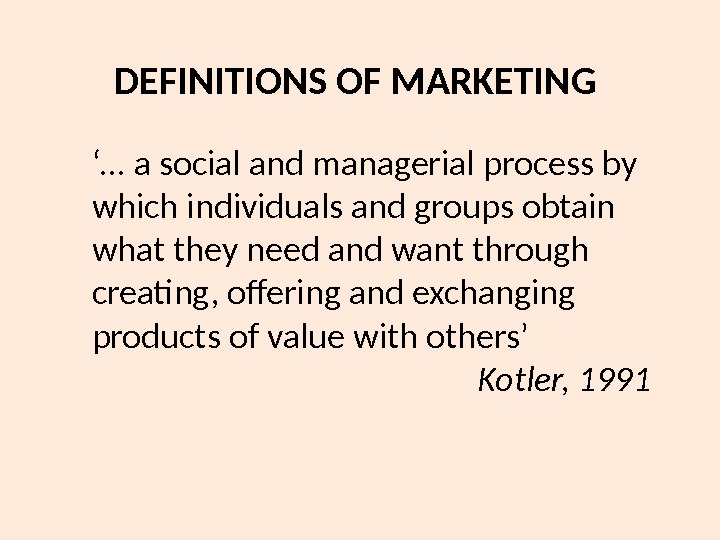
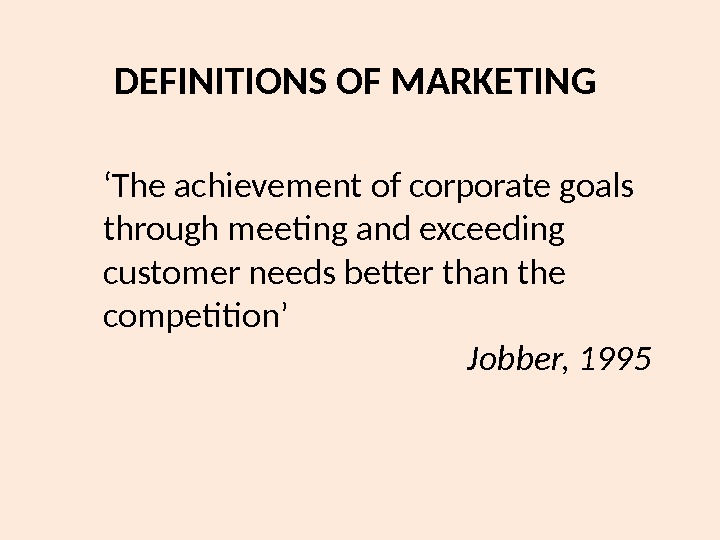
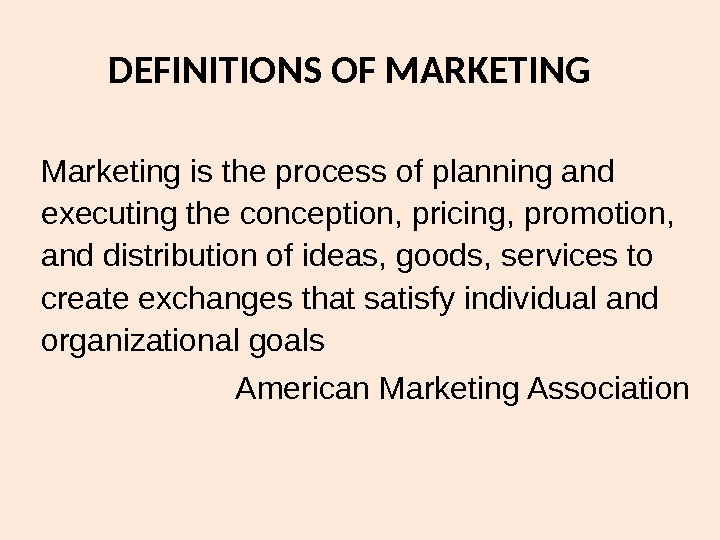
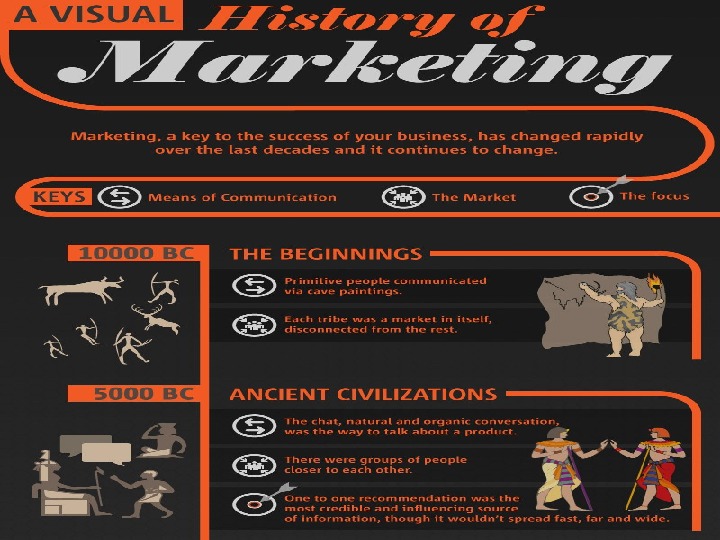
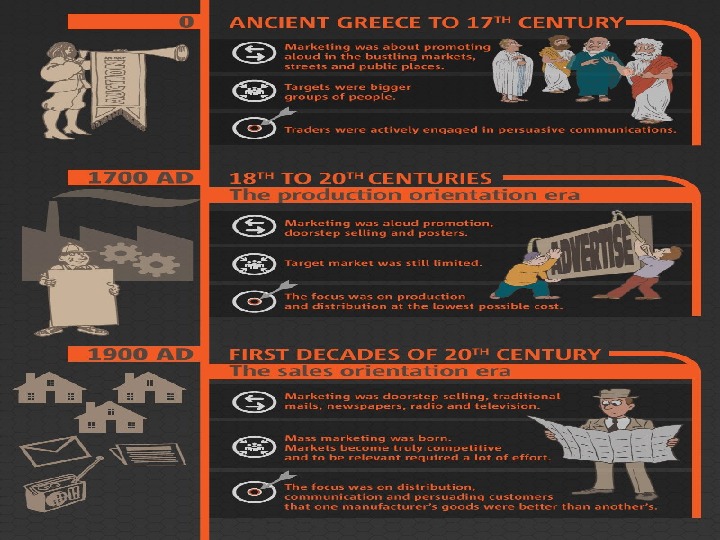
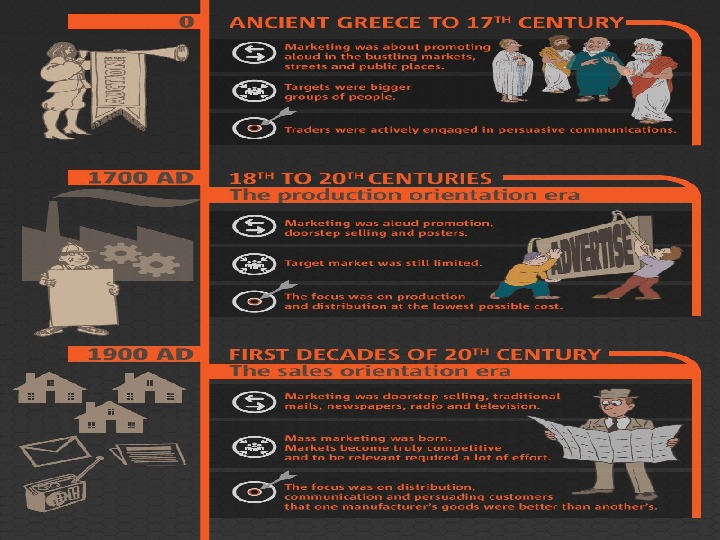
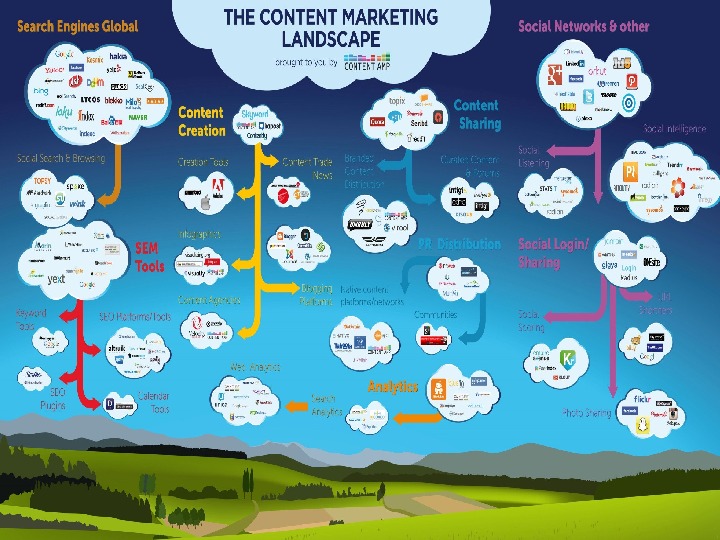
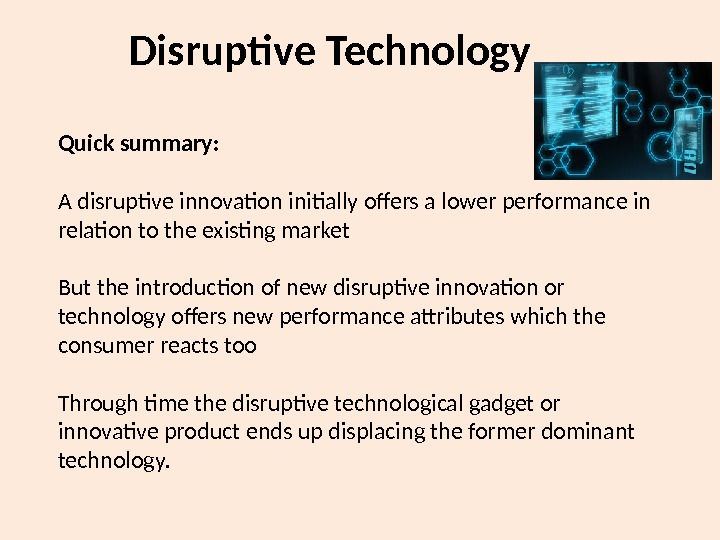
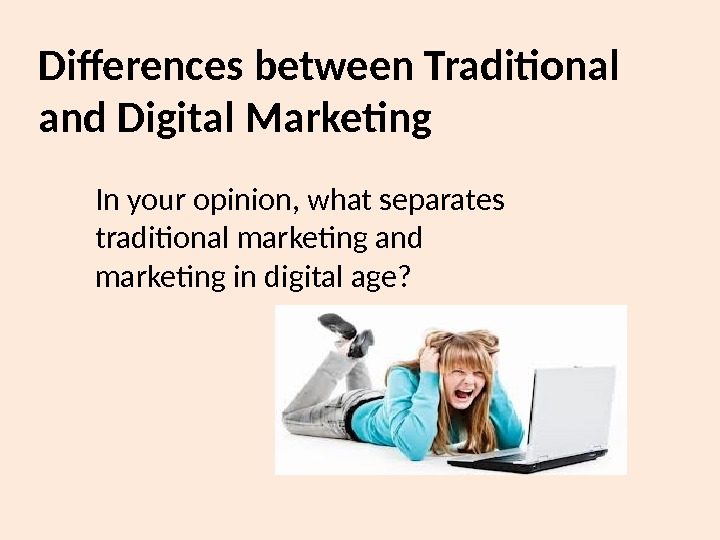
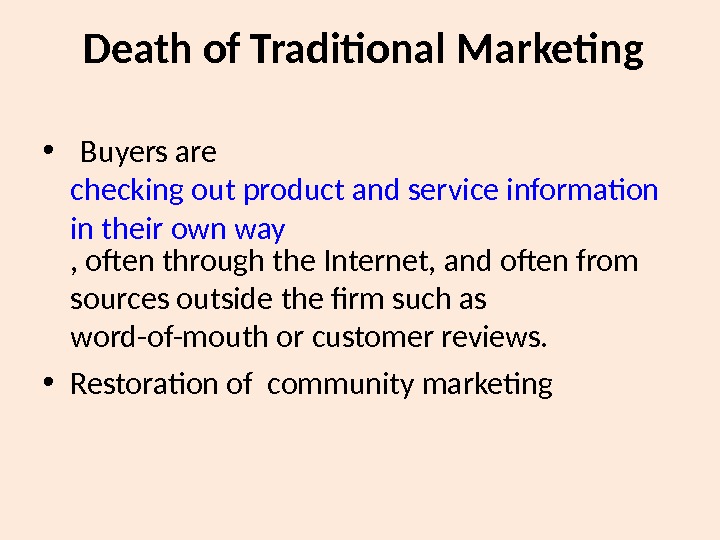
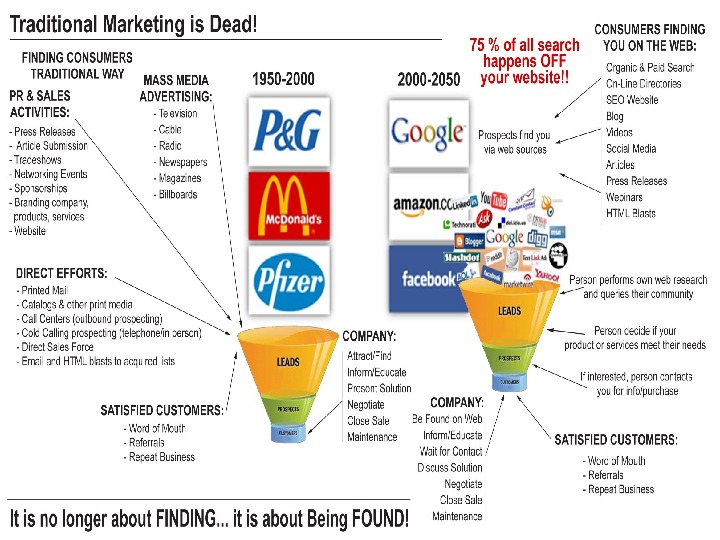
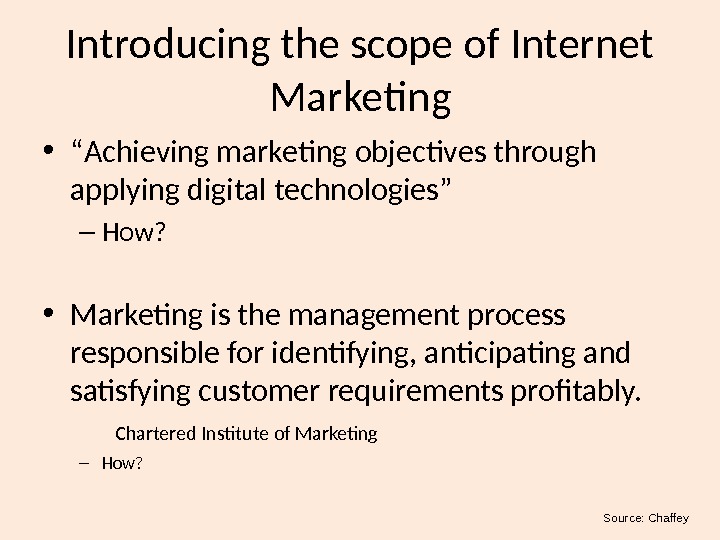
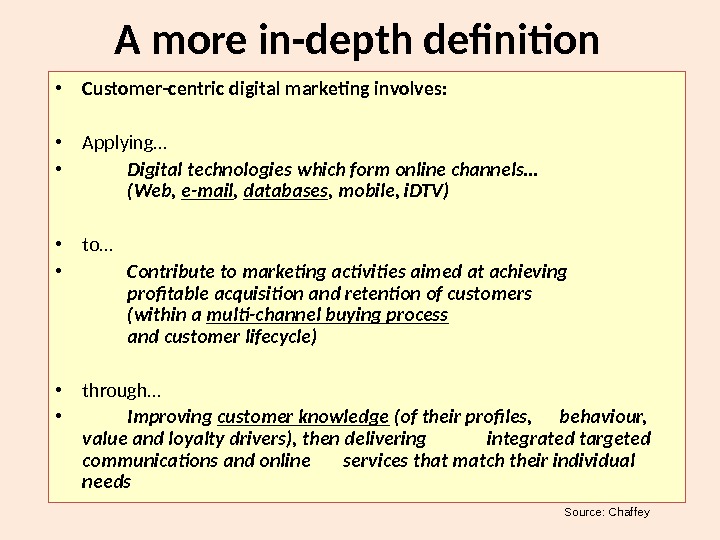
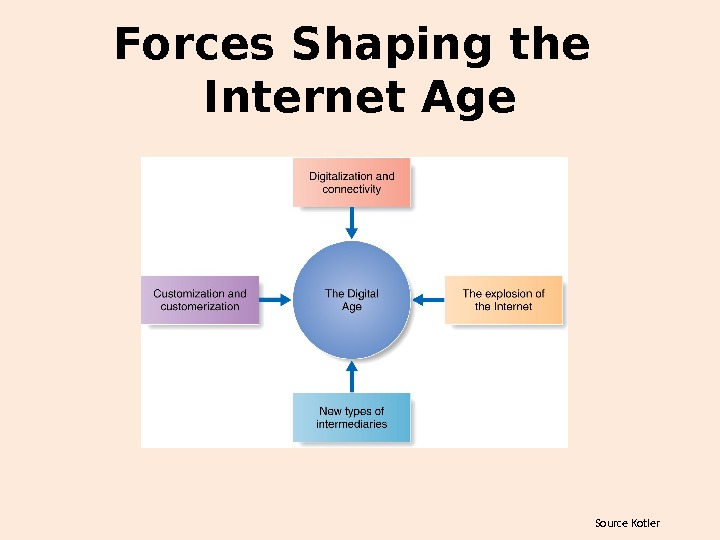
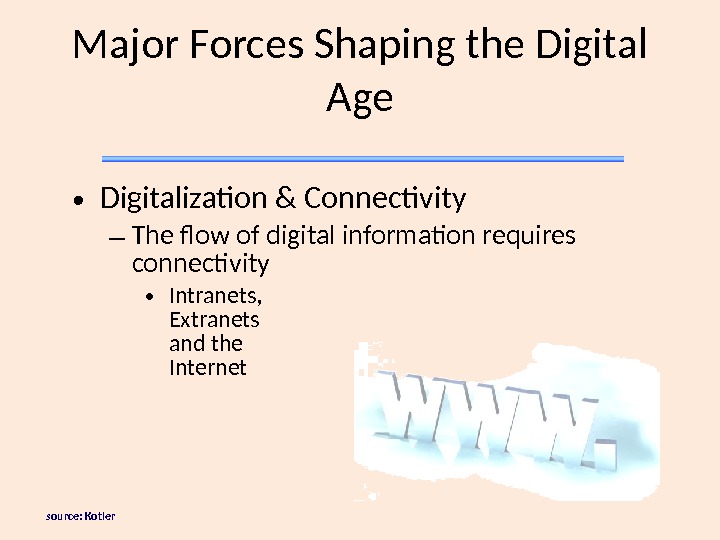
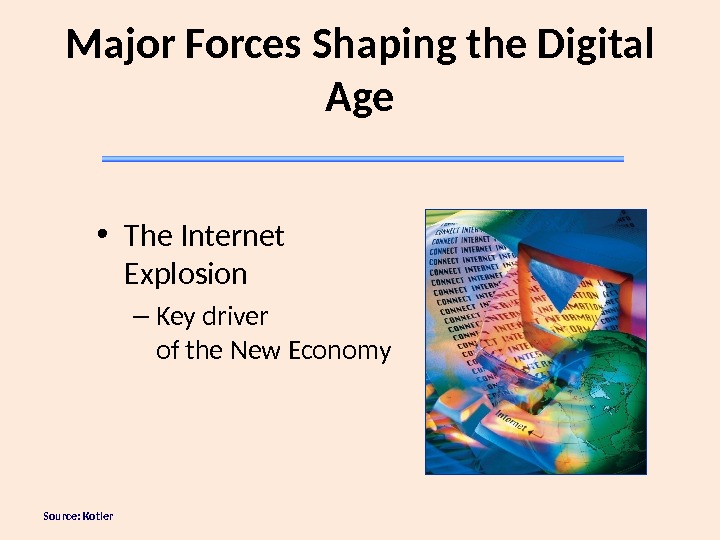
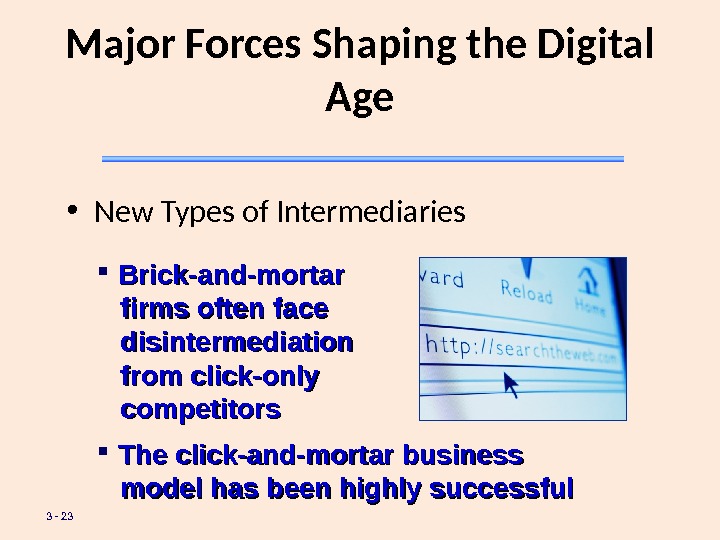
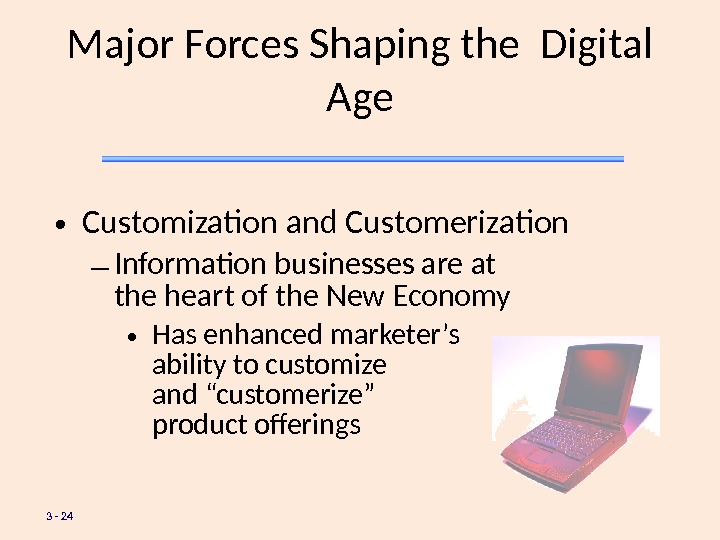
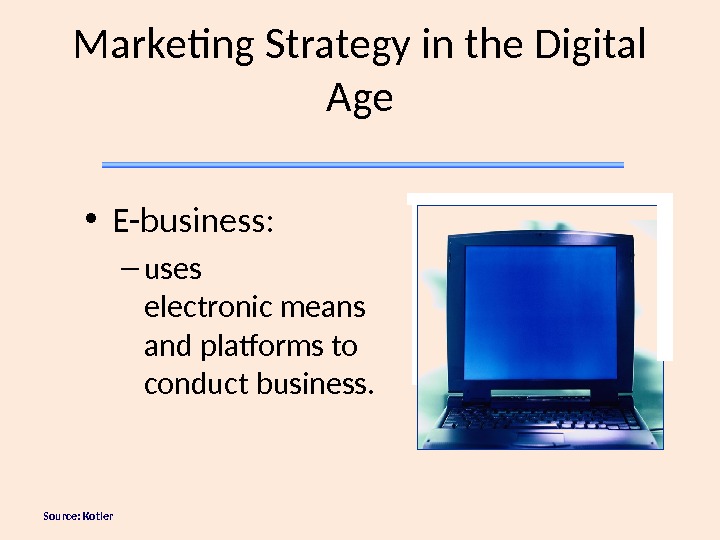
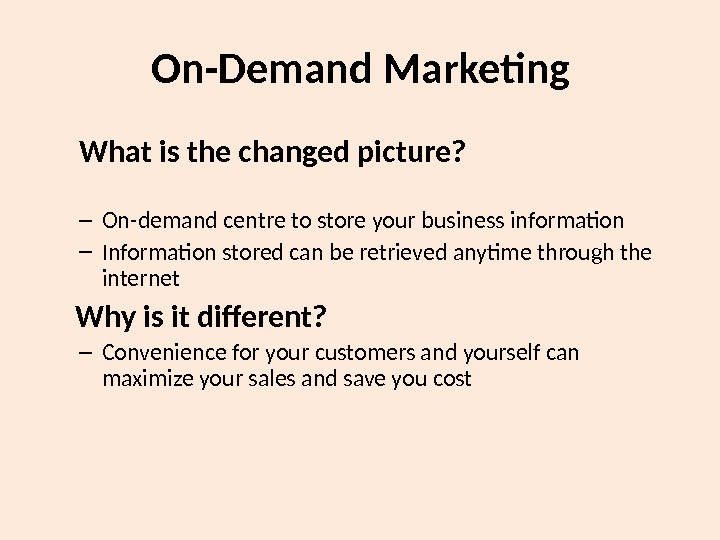
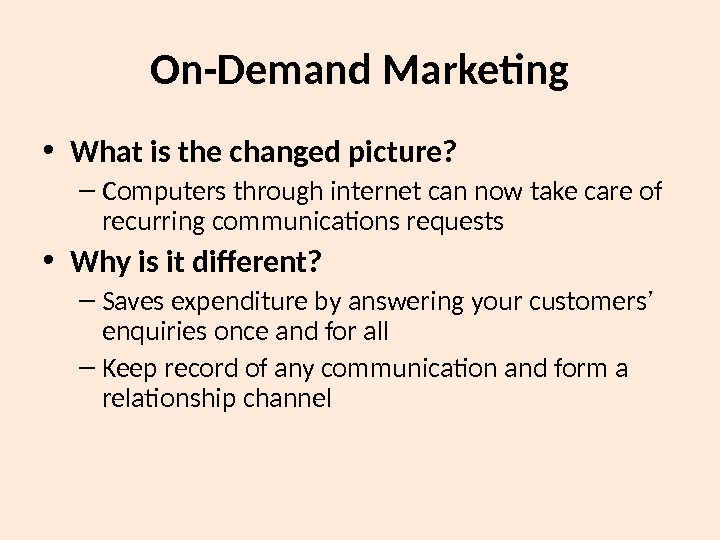
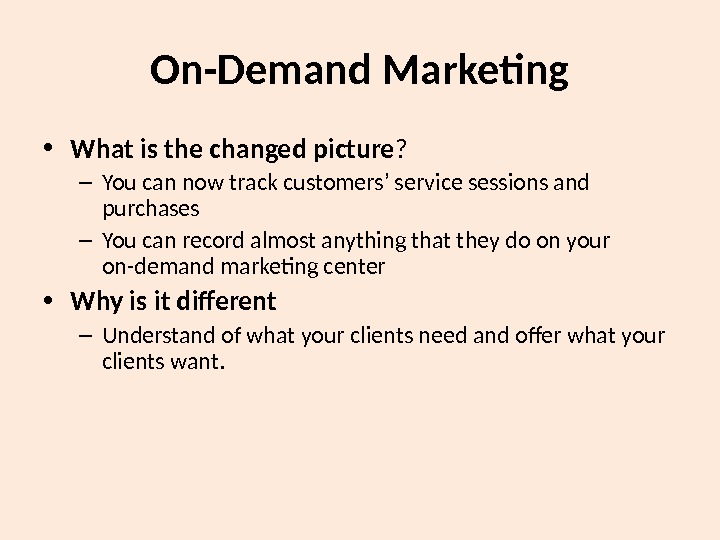
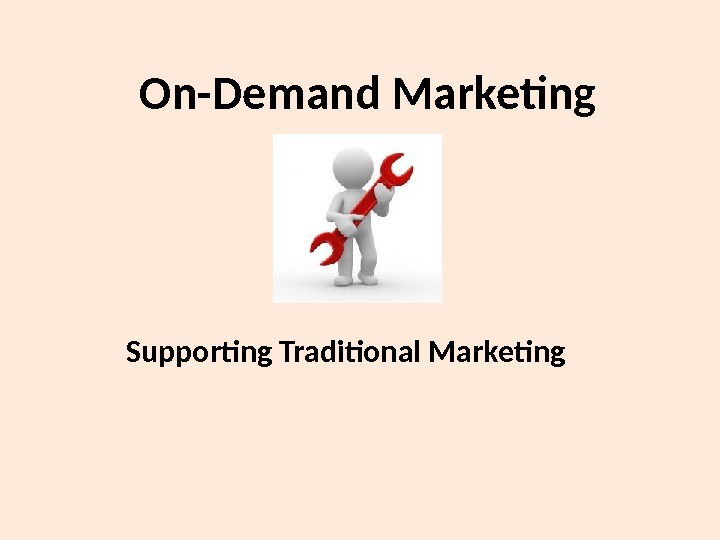
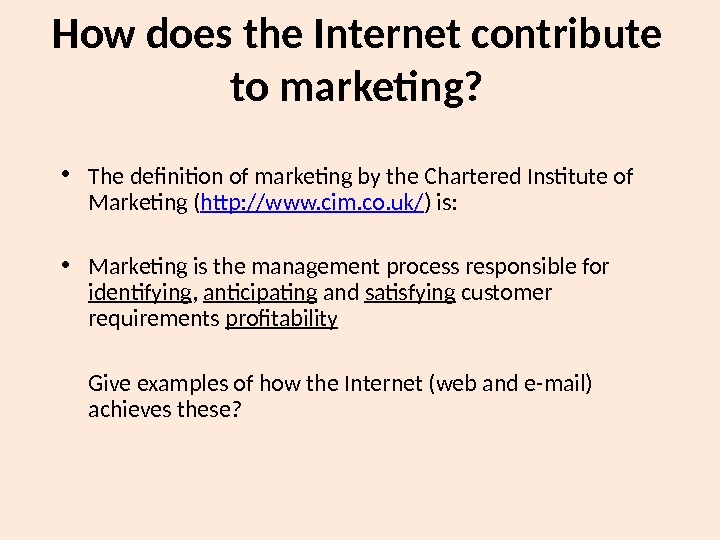
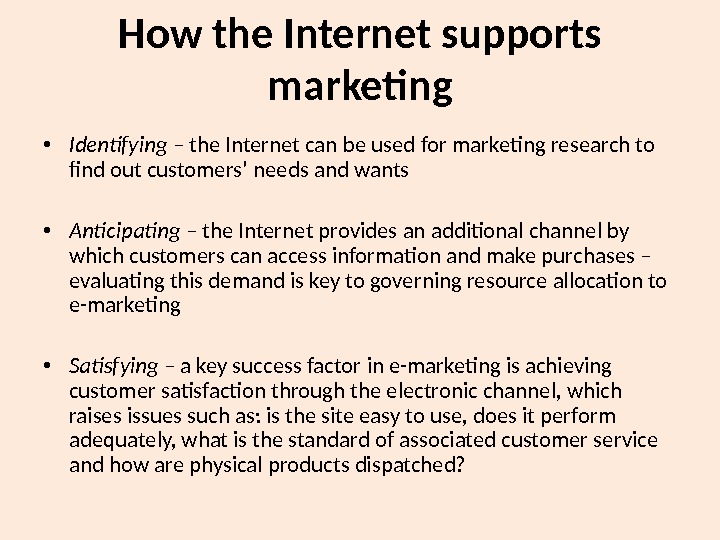
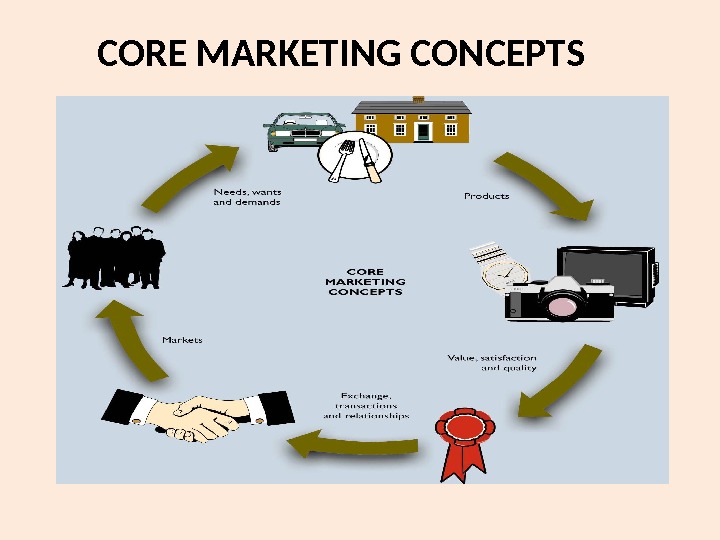
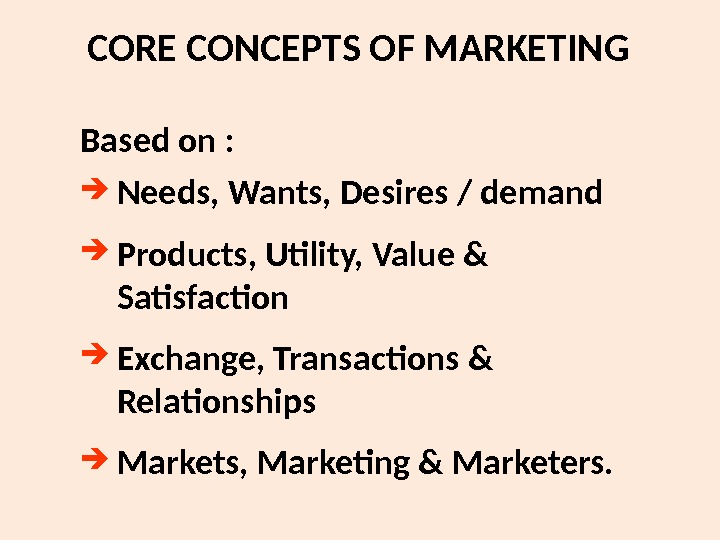
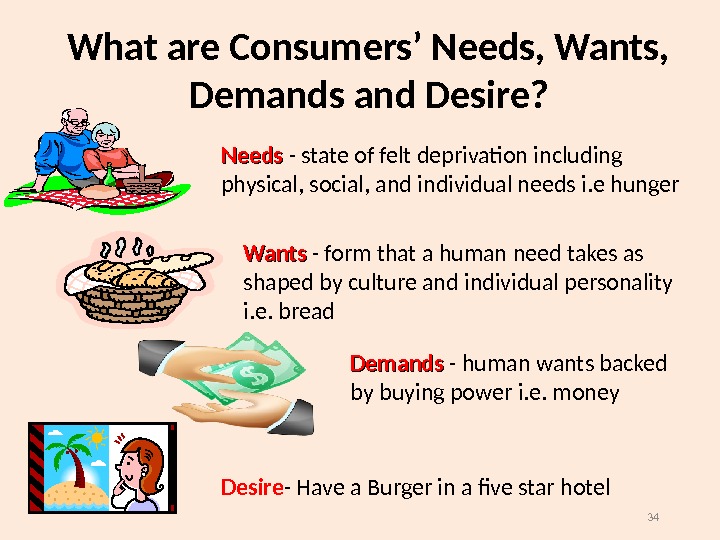
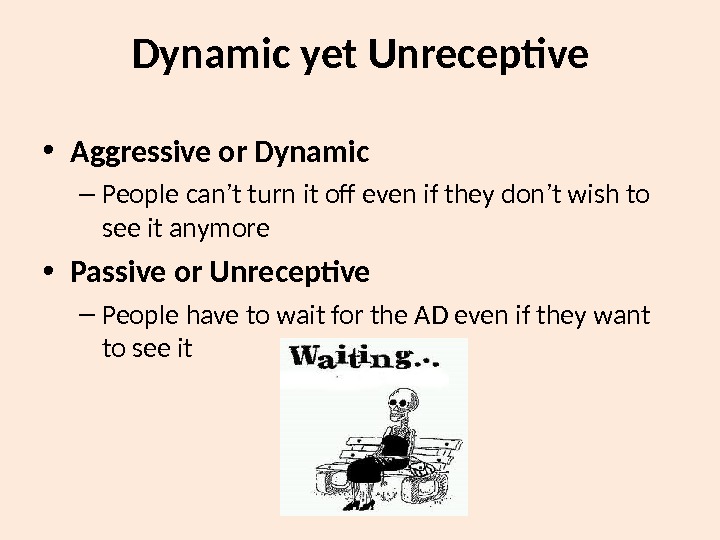
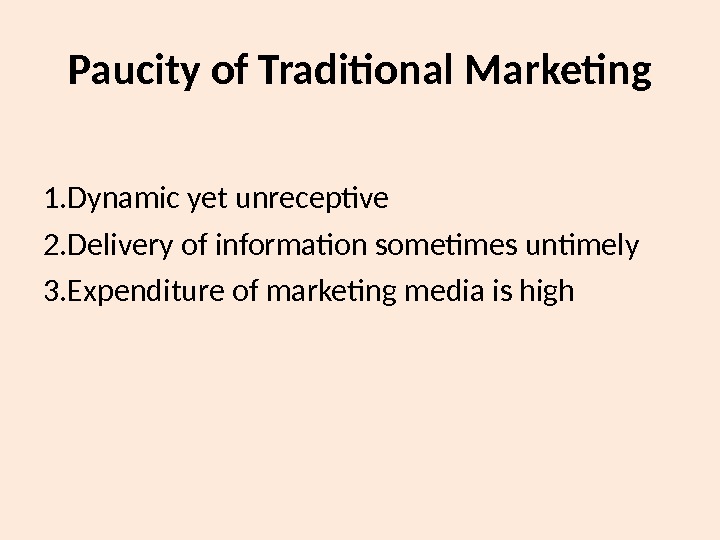
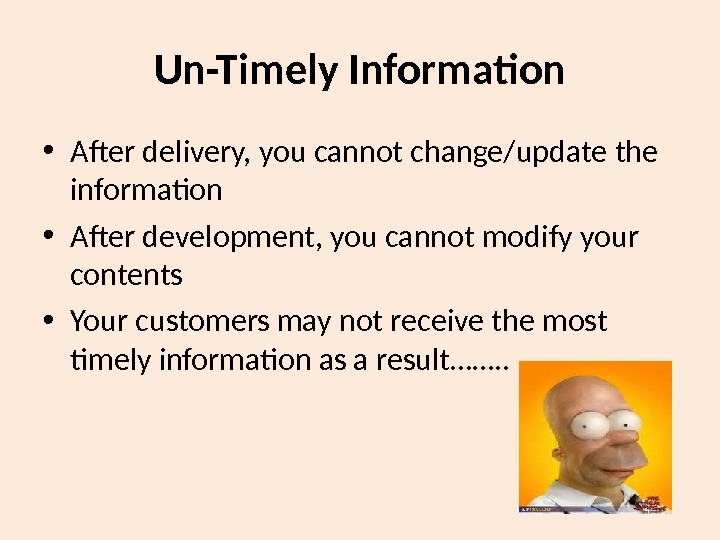
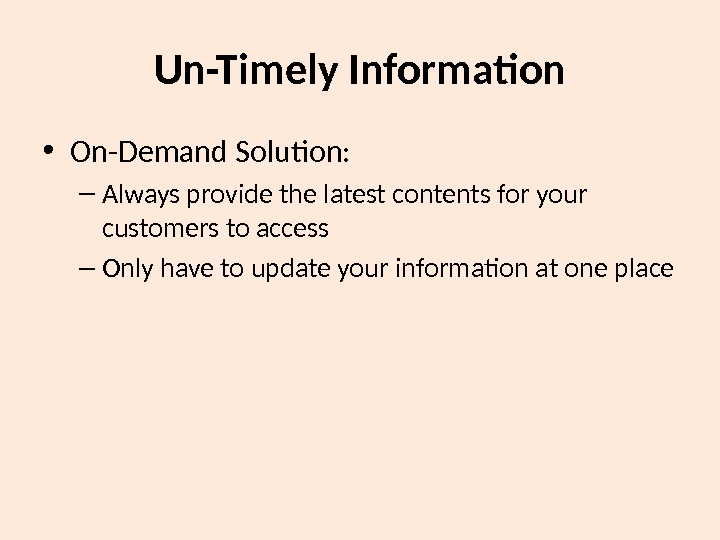
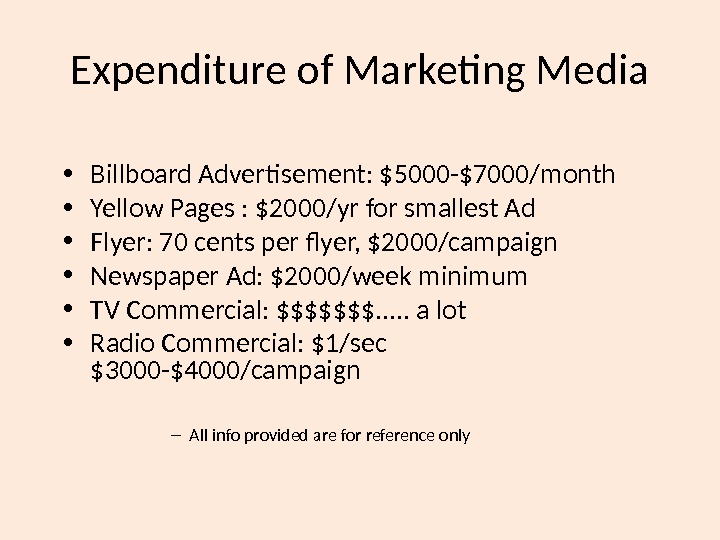
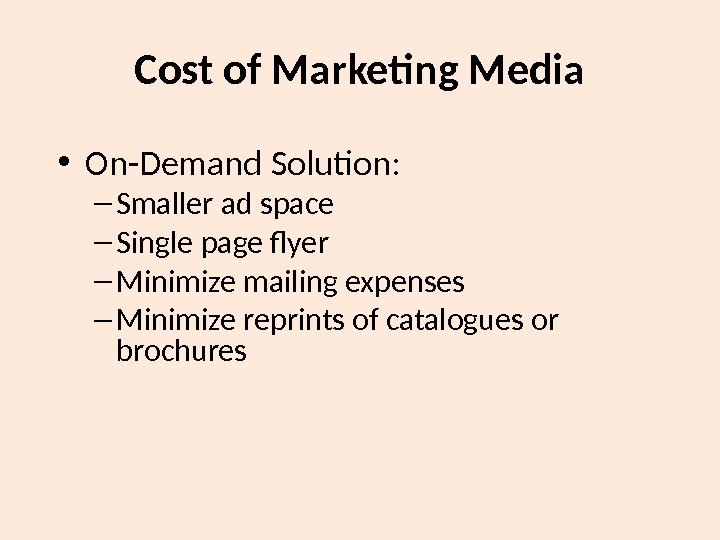
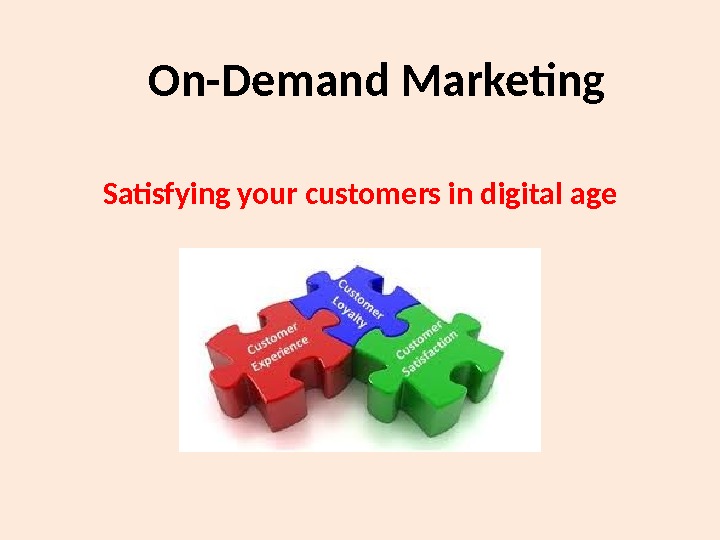
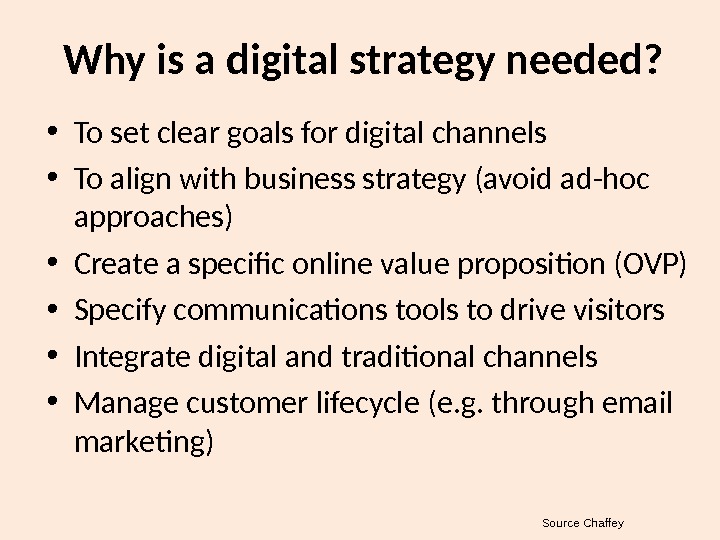
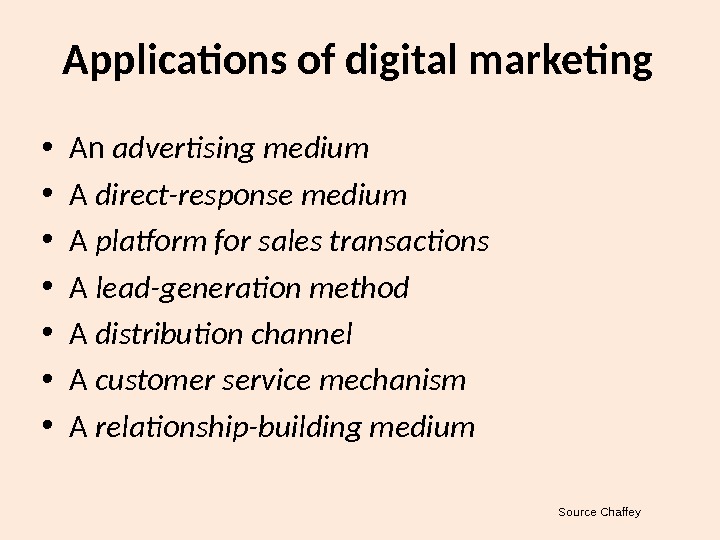
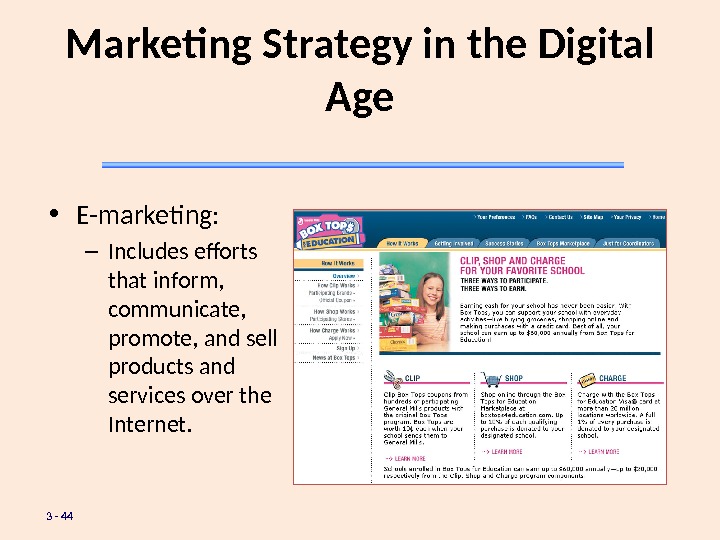
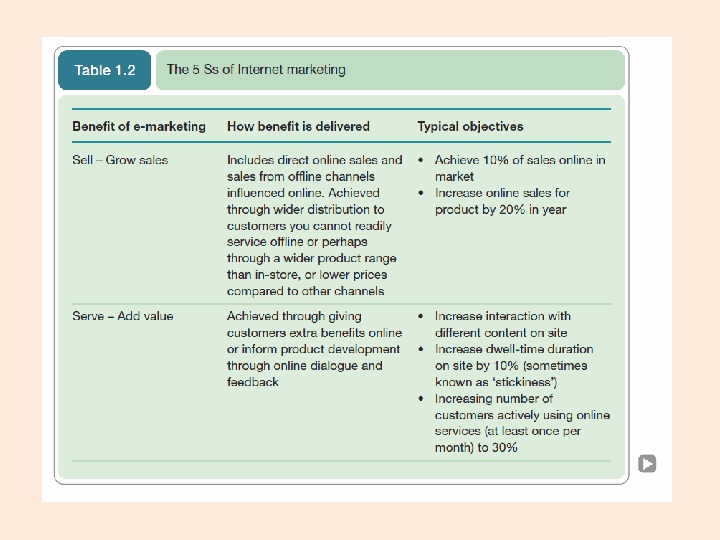
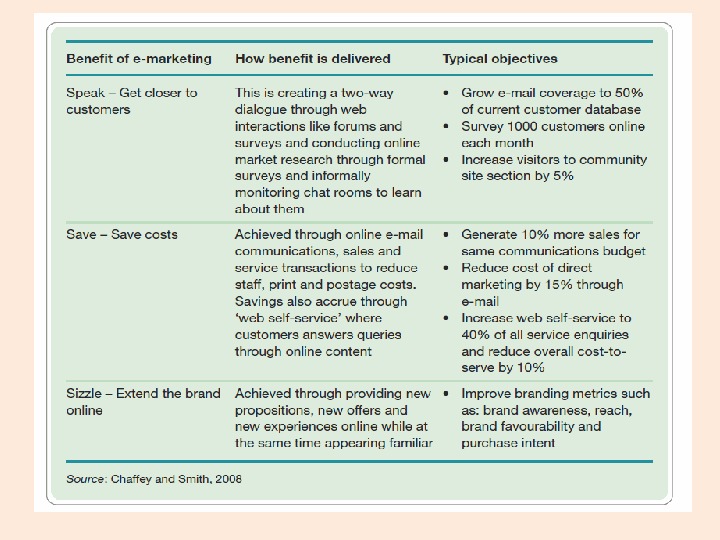
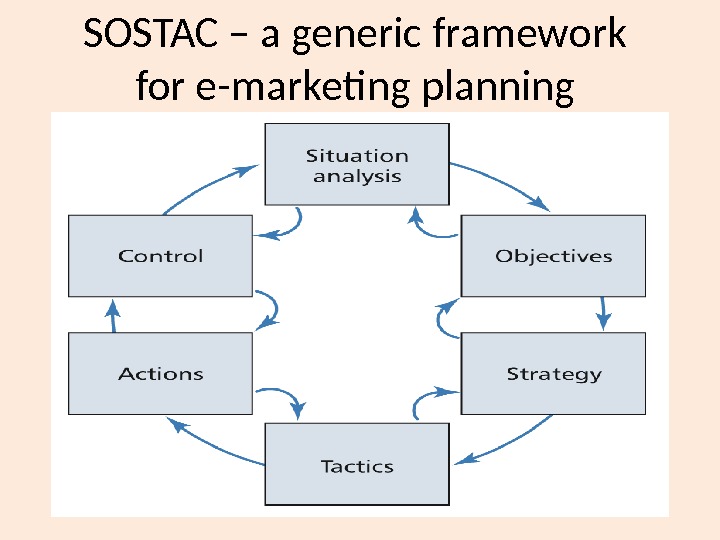
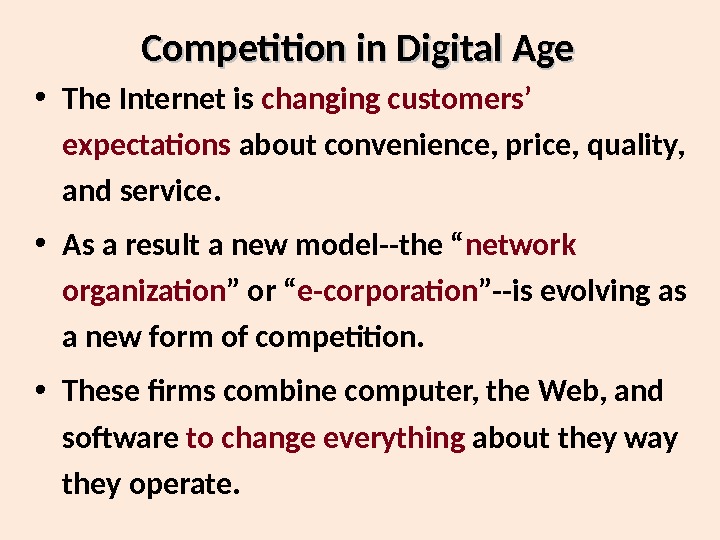
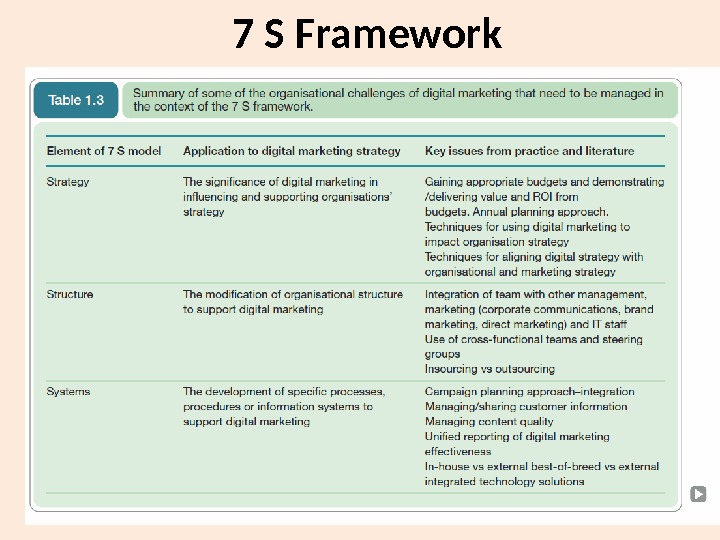
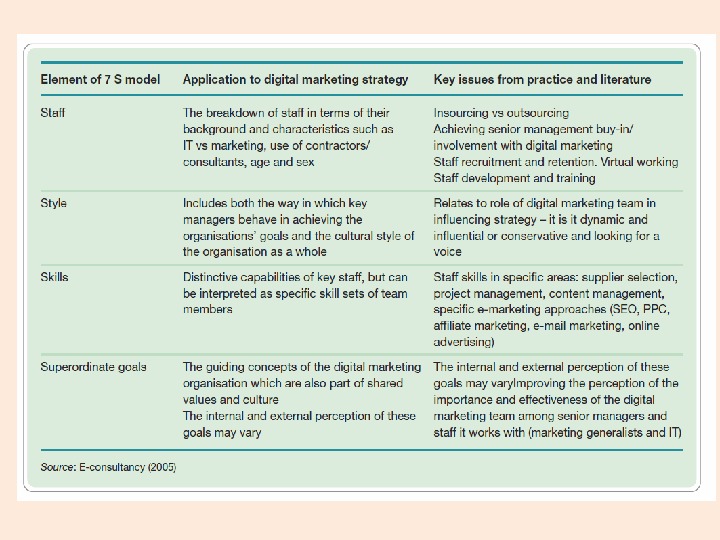

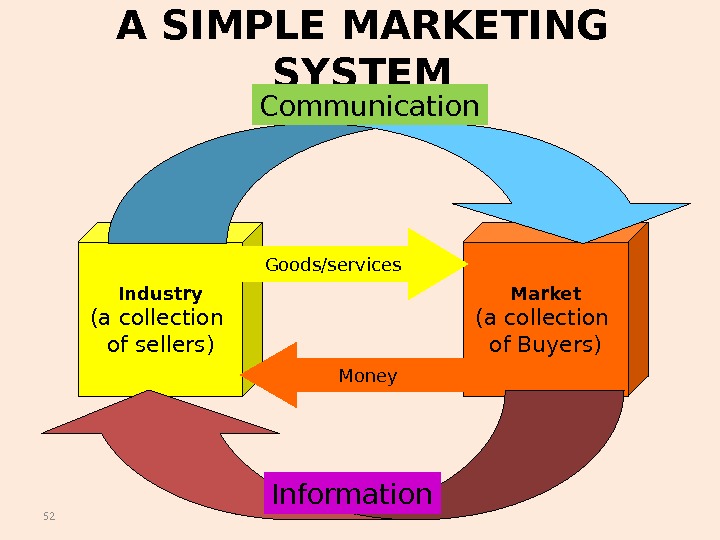
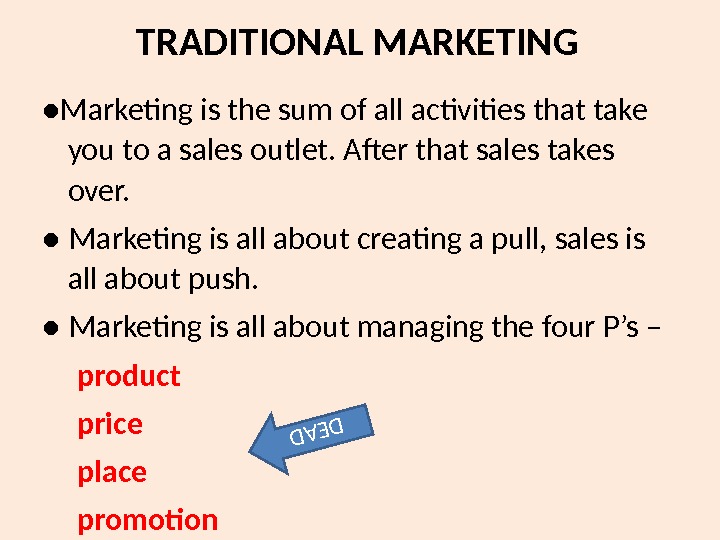
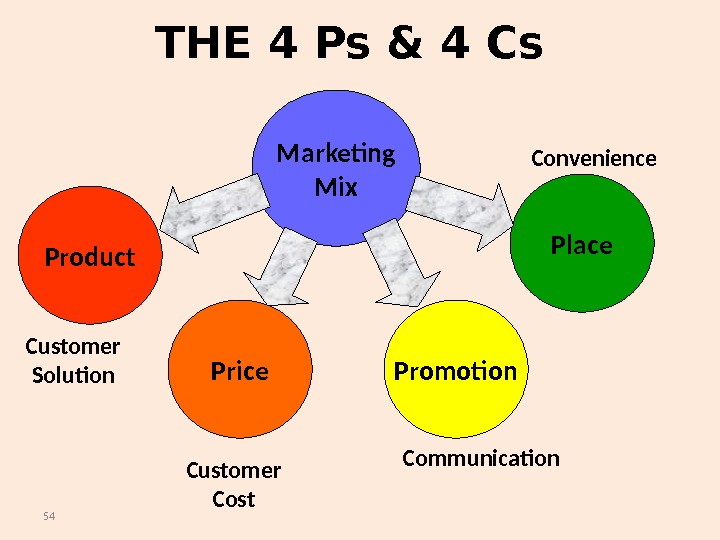
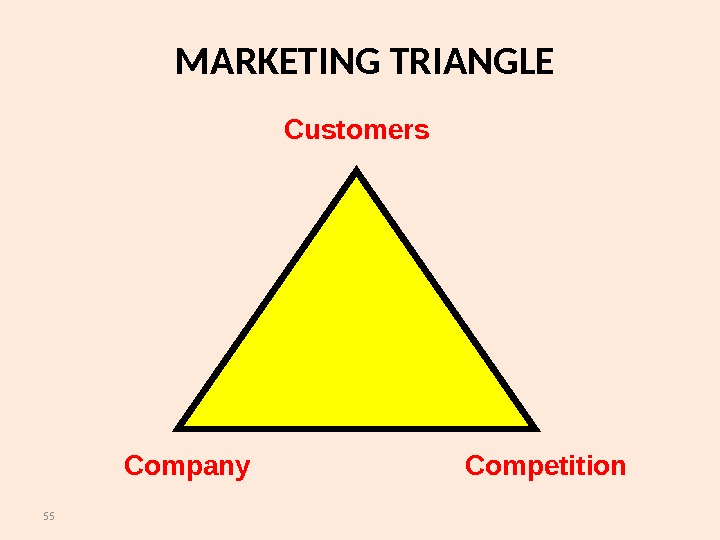
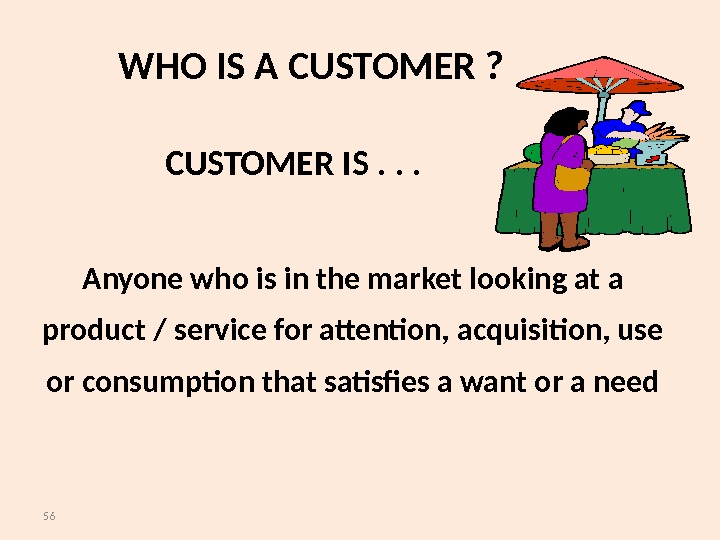
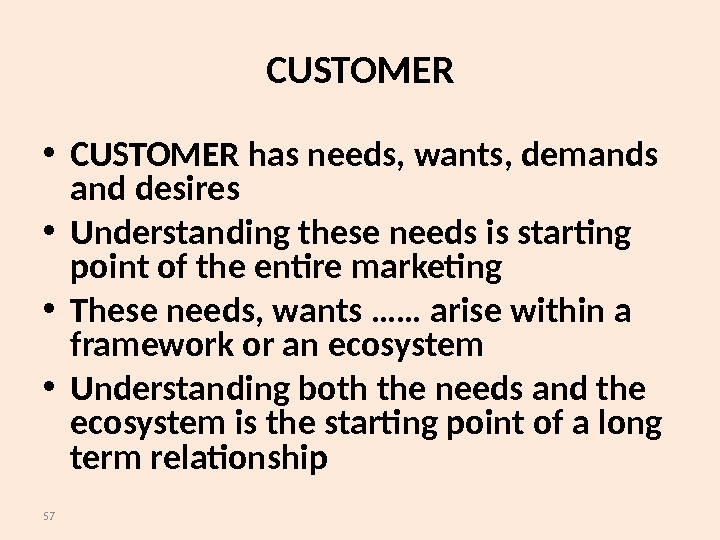
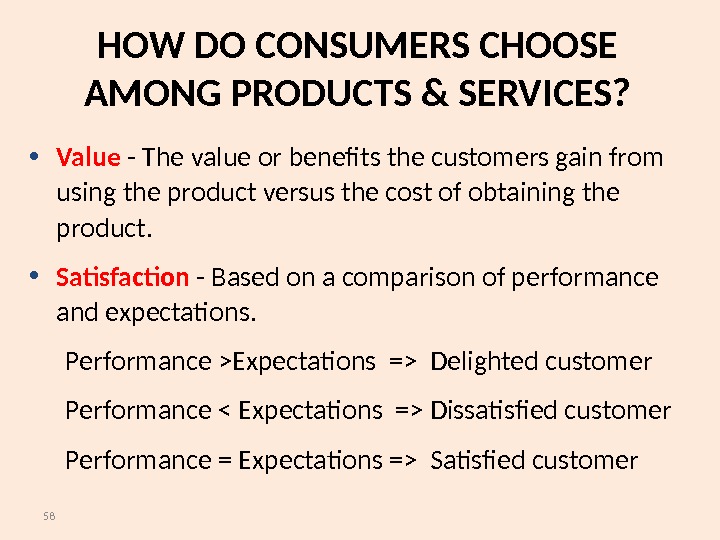
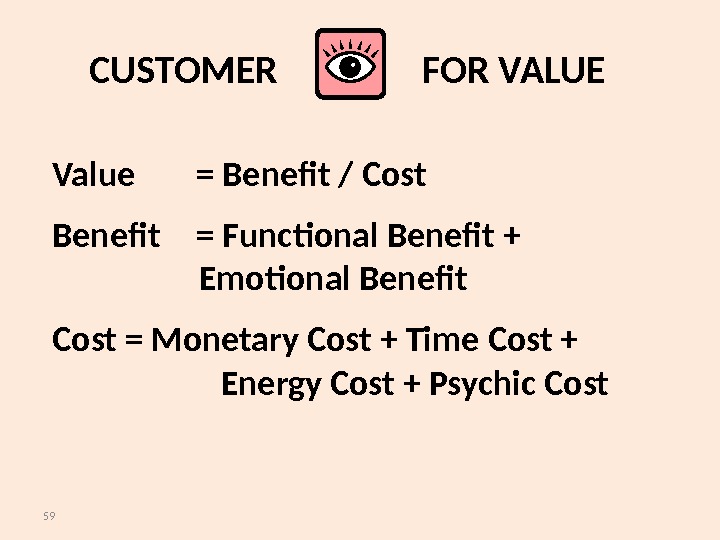
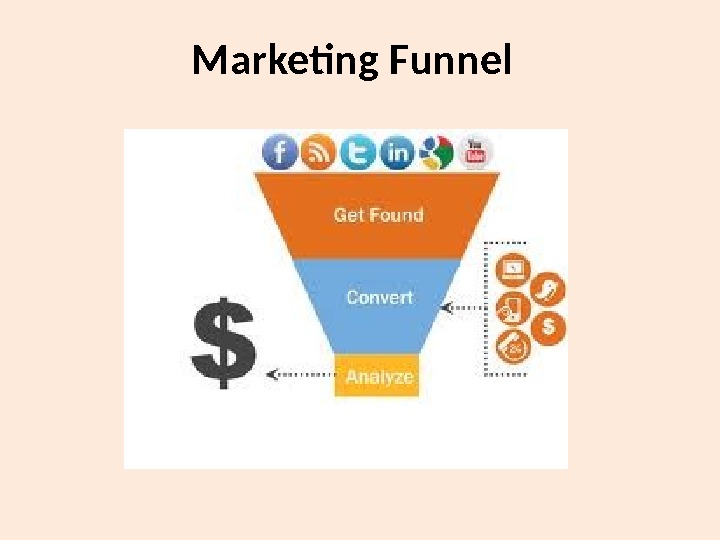
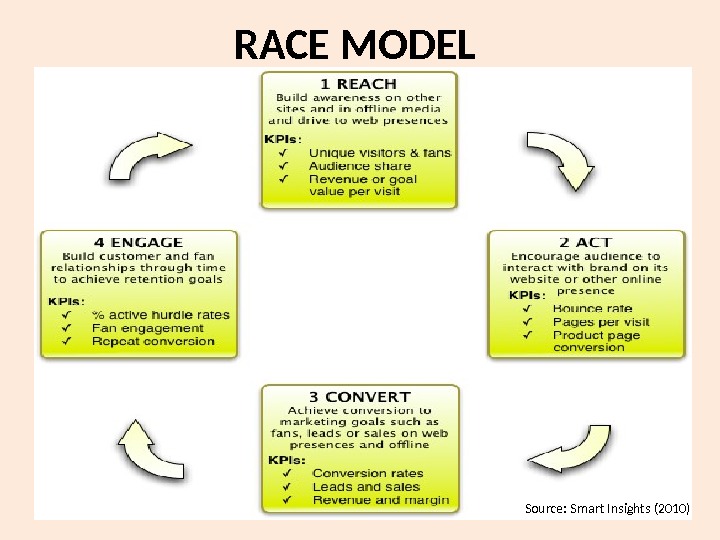
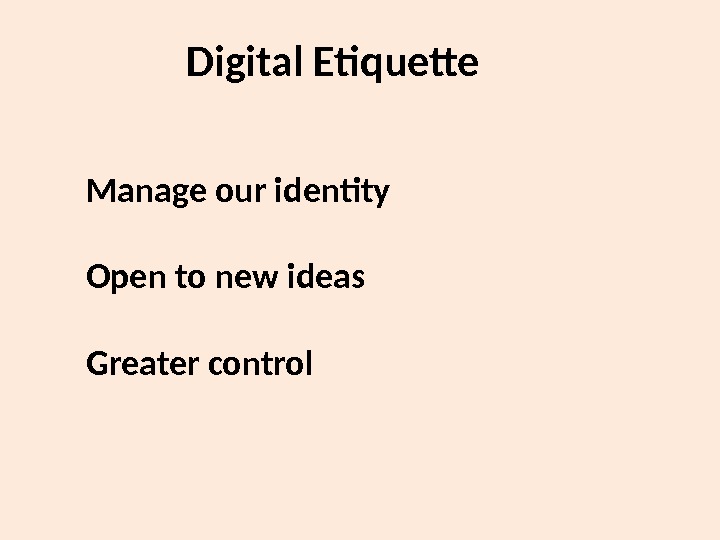
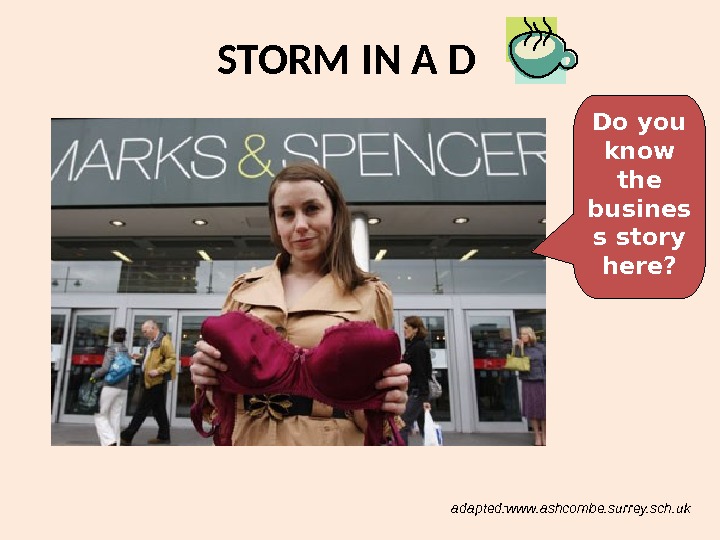
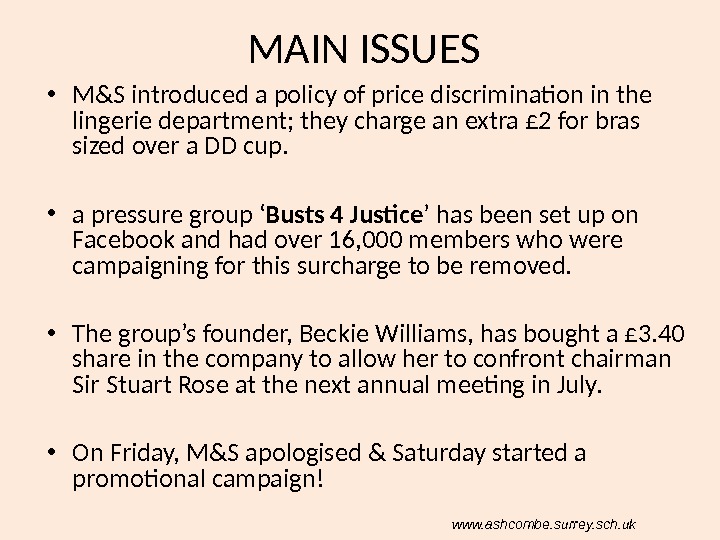
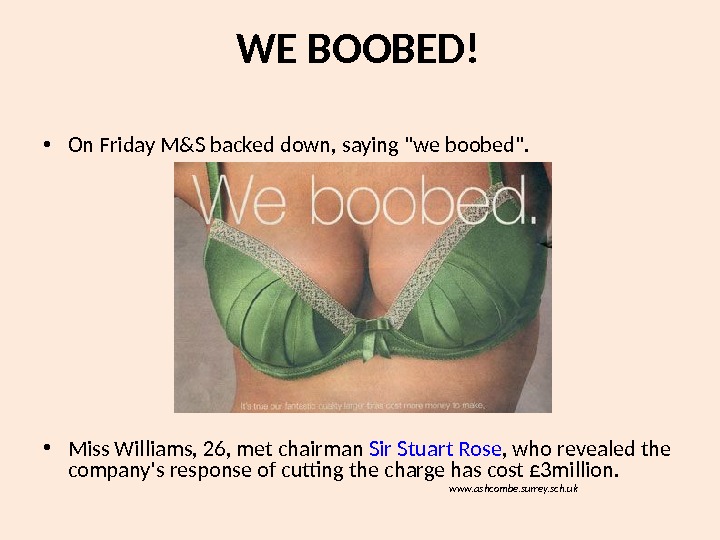
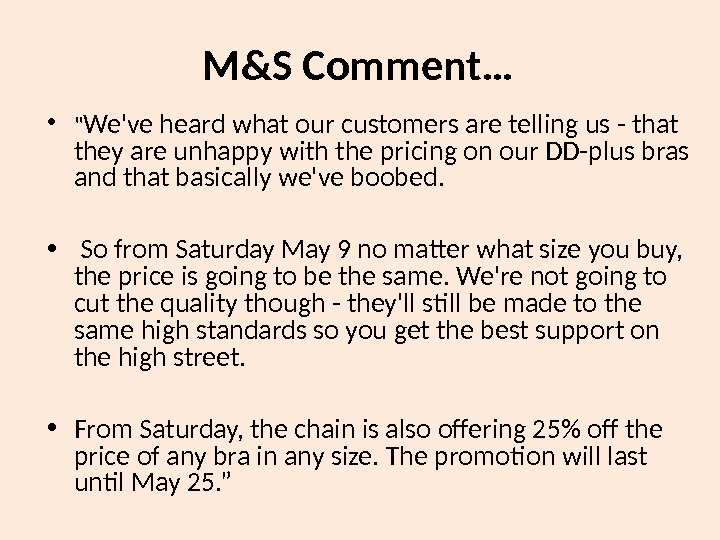
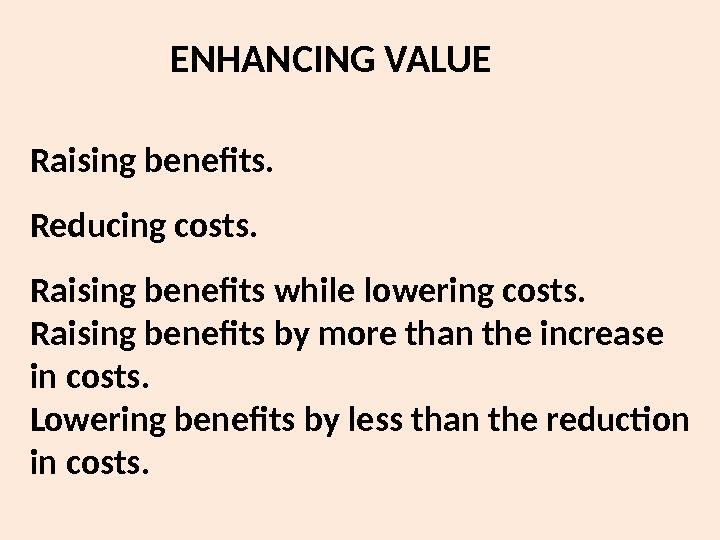
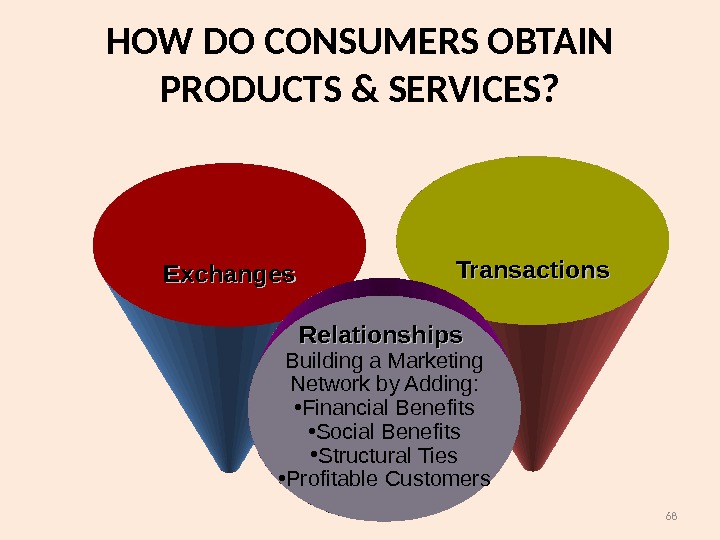
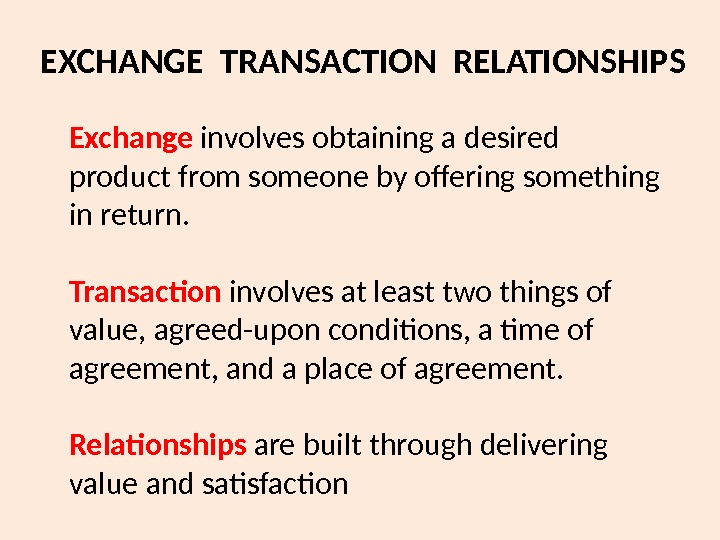

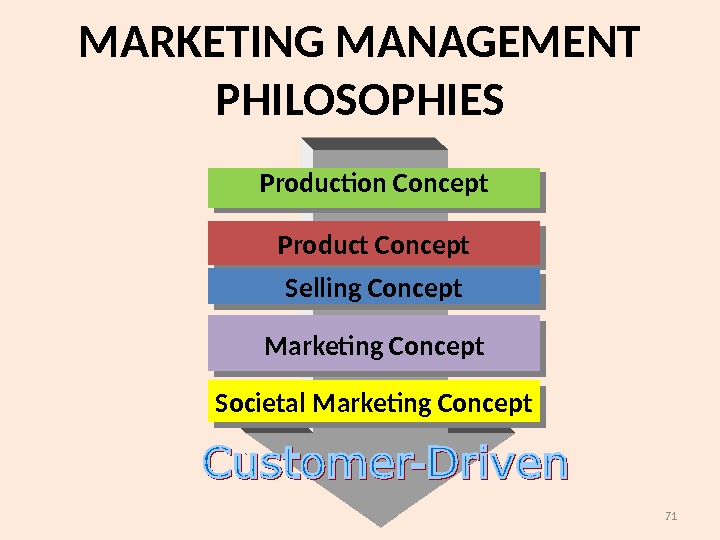
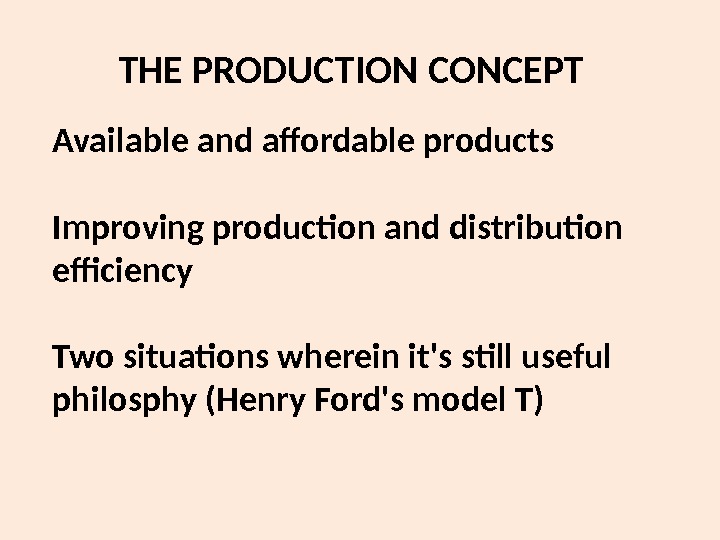
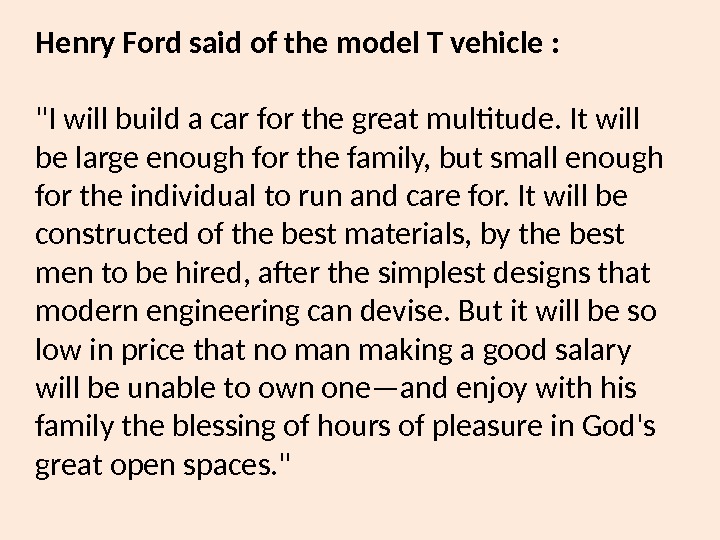
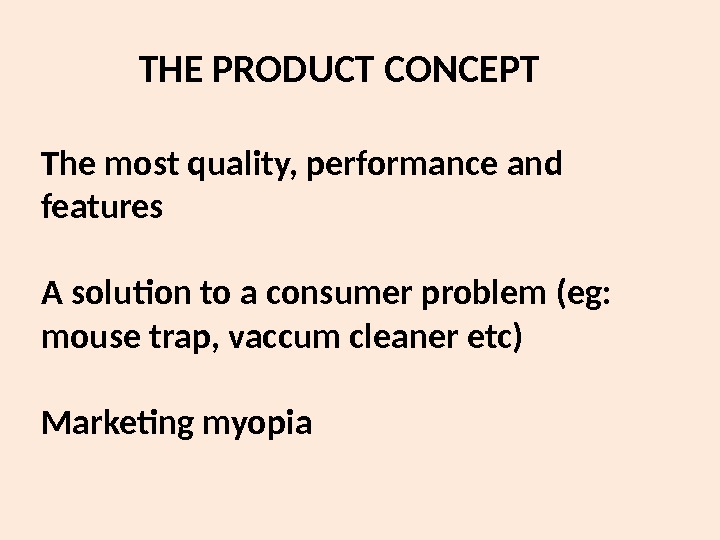
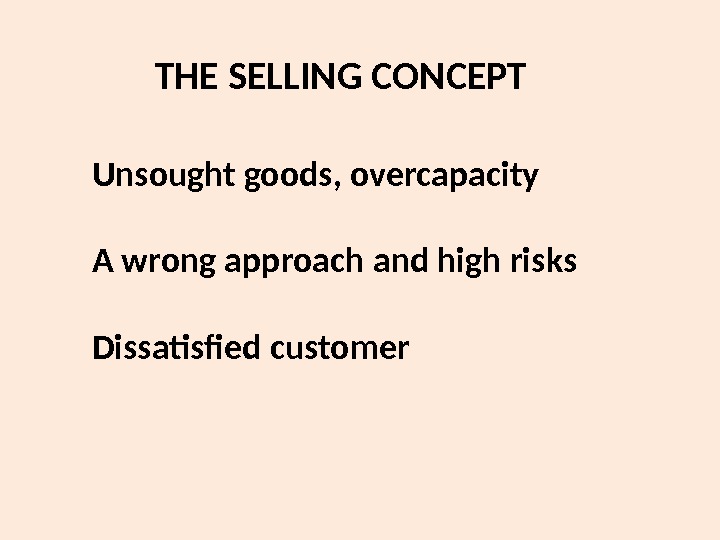
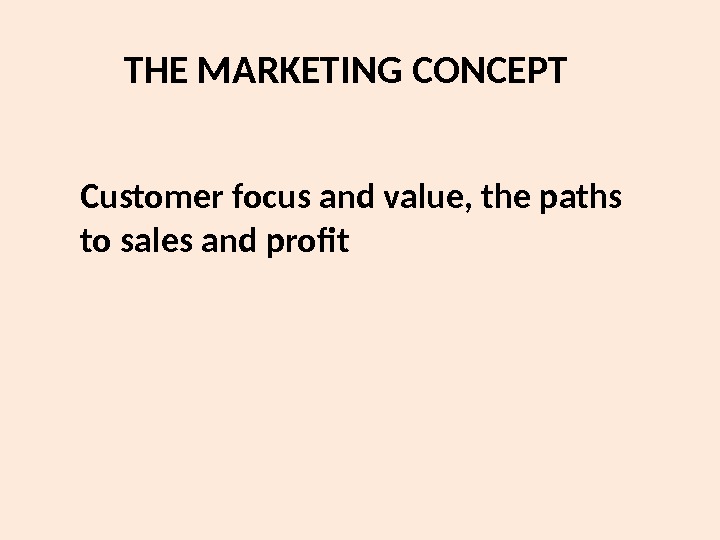
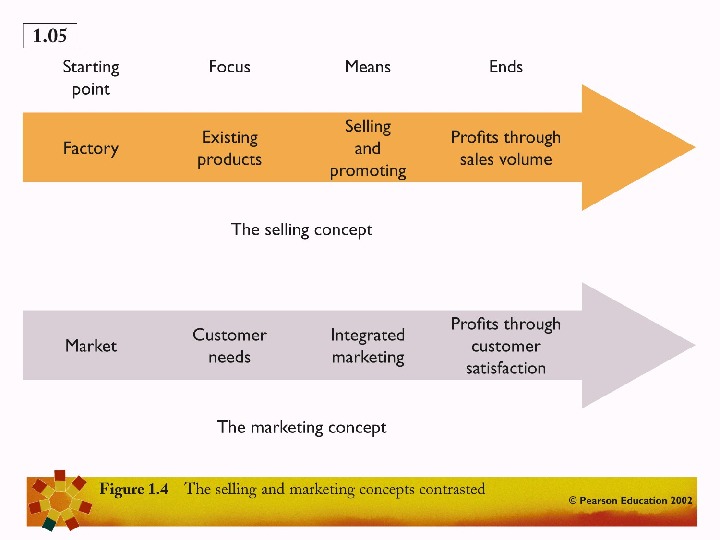
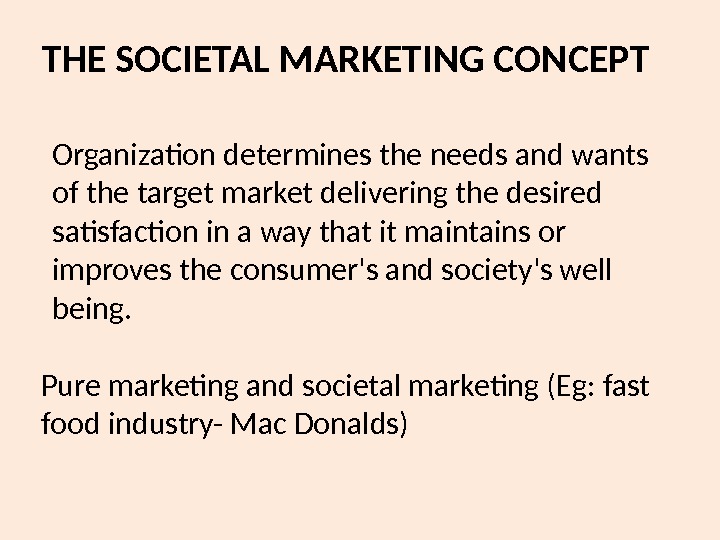
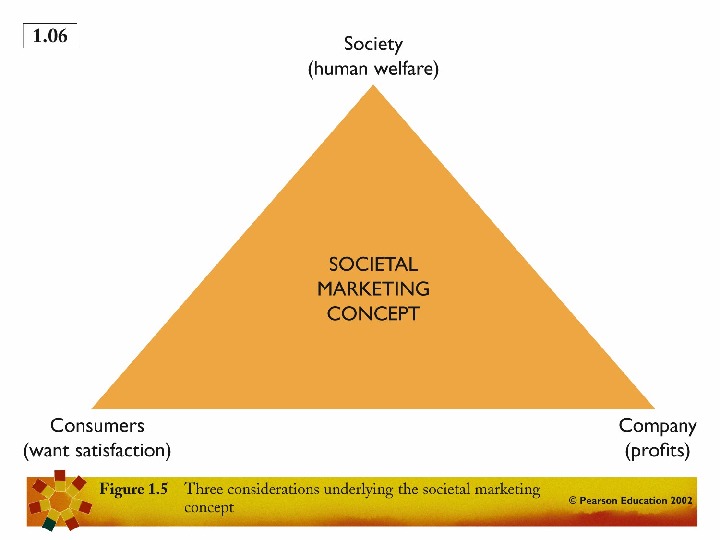
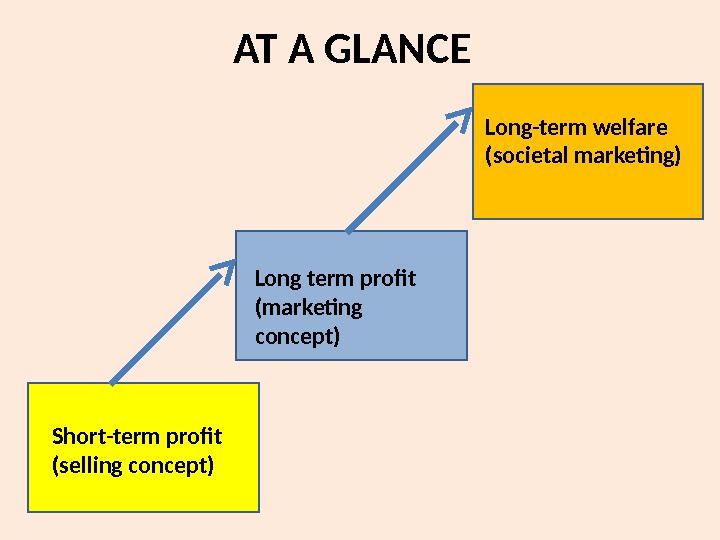
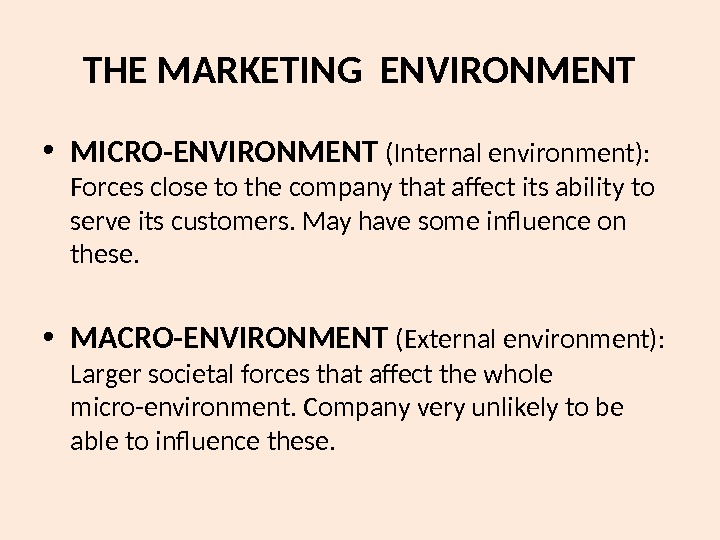
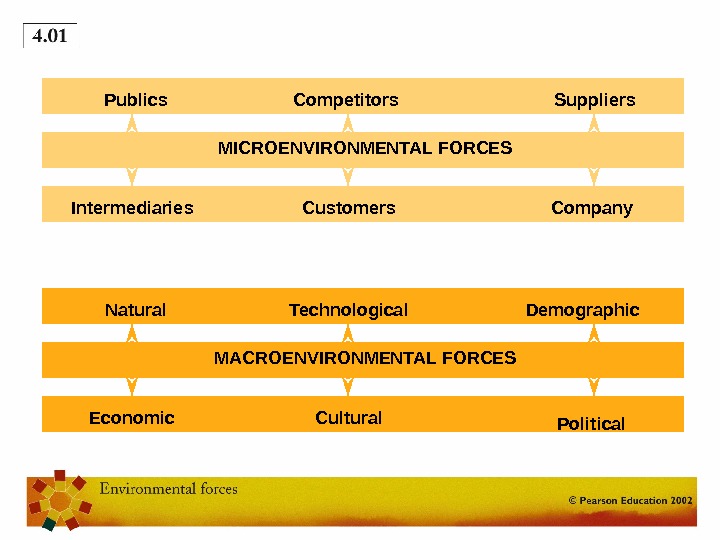
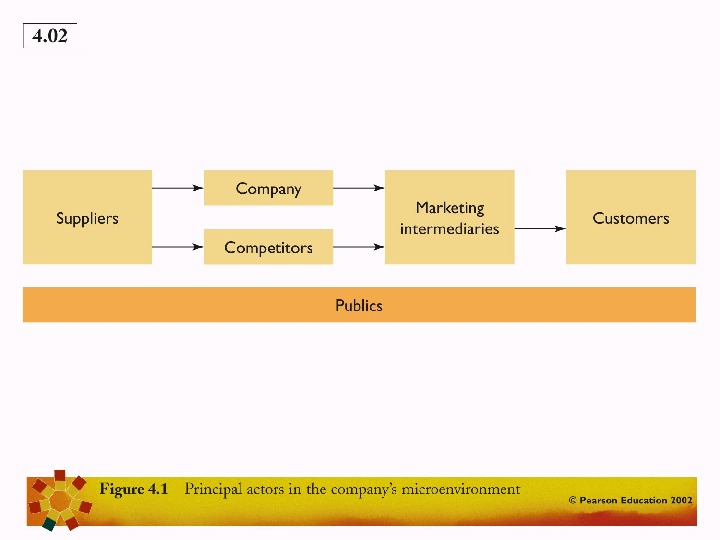
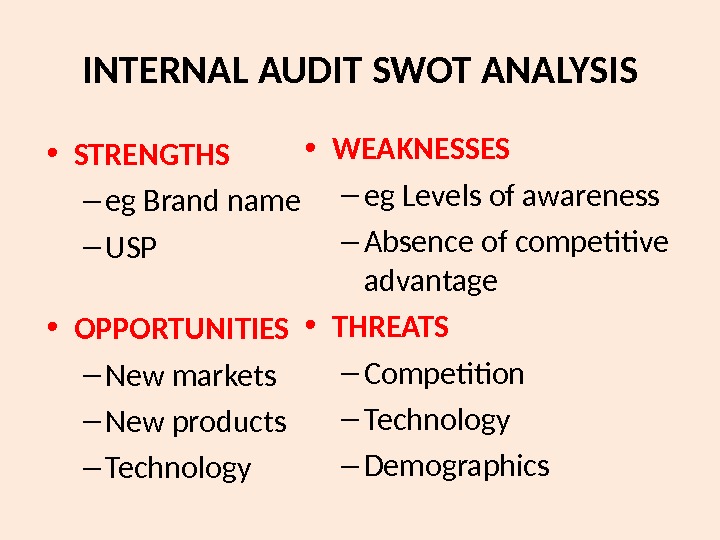

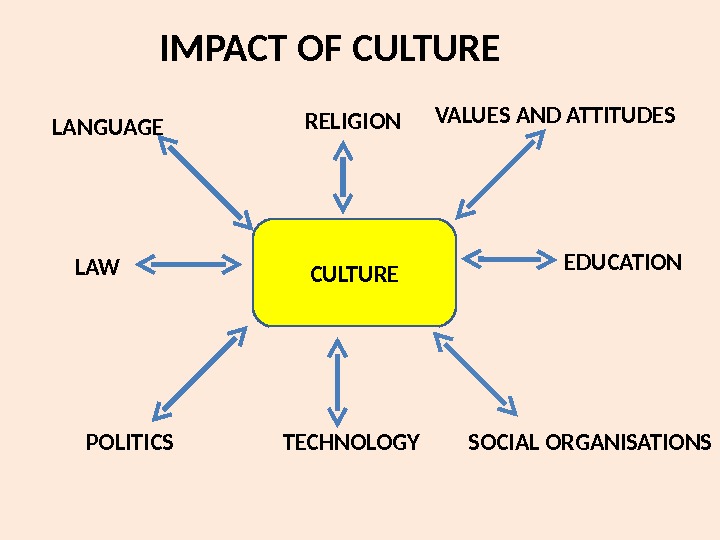
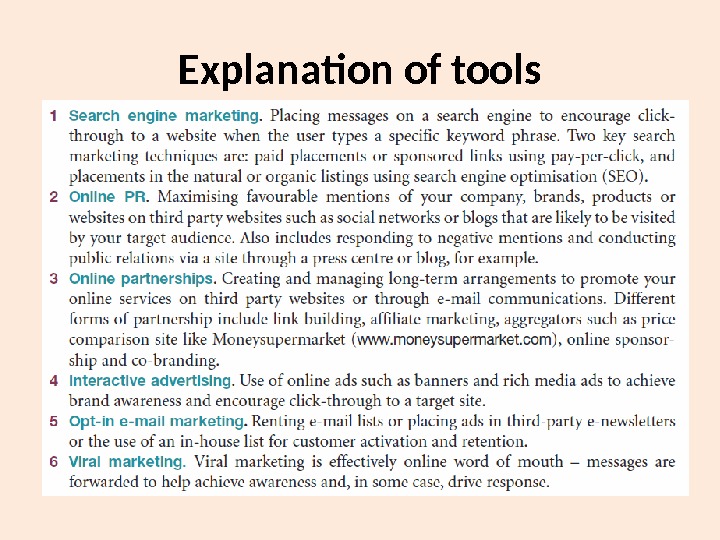
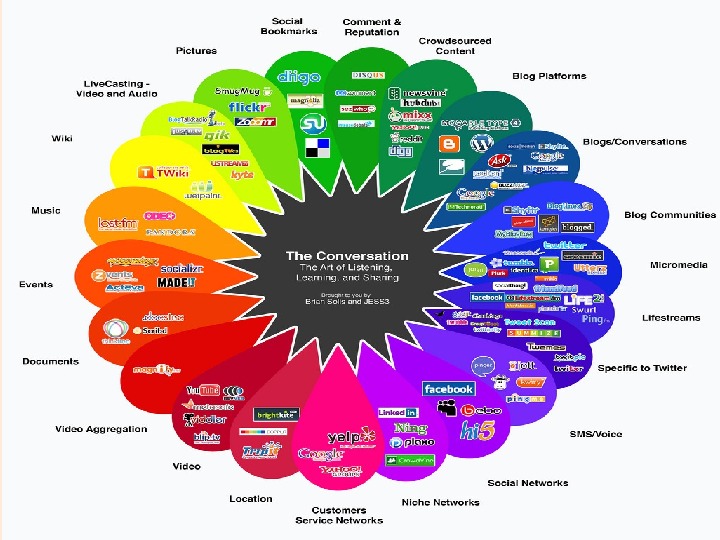
marketing_concept_and_environment_addition_1.ppt
- Размер: 6.4 Mегабайта
- Количество слайдов: 88
Описание презентации Презентация marketing concept and environment addition 1 по слайдам
 Marketing In A Digital World
Marketing In A Digital World
 The Changed Marketing Concept and Environment
The Changed Marketing Concept and Environment
 From Harvard Twitter • People Are the New Channel • Externally, empower your customers to be brand advocates • Internally, treat your entire organization as your marketing team • Don’t talk, listen • Don’t push products, solve problems • Don’t stop at 1 -to-1, think many-to-many http: //blogs. hbr. org/cs/2013/04/people_are_the_new_channel. html? utm_source=S ocialflow&utm_medium=Tweet&utm_campaign=Socialflow
From Harvard Twitter • People Are the New Channel • Externally, empower your customers to be brand advocates • Internally, treat your entire organization as your marketing team • Don’t talk, listen • Don’t push products, solve problems • Don’t stop at 1 -to-1, think many-to-many http: //blogs. hbr. org/cs/2013/04/people_are_the_new_channel. html? utm_source=S ocialflow&utm_medium=Tweet&utm_campaign=Socialflow
 “ It’s a disadvantage of the revolution … People used to say that information is power but that’s no longer the case. It’s analysis of the data, use of the data, digging into it – that is the power. You get so much of the stuff and everyone has access to it. ” ( Sir Martin Sorrell )
“ It’s a disadvantage of the revolution … People used to say that information is power but that’s no longer the case. It’s analysis of the data, use of the data, digging into it – that is the power. You get so much of the stuff and everyone has access to it. ” ( Sir Martin Sorrell )
 “ In the old days, you could segment happily. You could put one message to one segment of the audience, and one to another. That has now gone. You say something to one community and instantly, literally at a click, it’s available to everybody. What it means is that if you’re trying to craft a message, it’s very difcult. ” ( Sir Martin Sorrell )
“ In the old days, you could segment happily. You could put one message to one segment of the audience, and one to another. That has now gone. You say something to one community and instantly, literally at a click, it’s available to everybody. What it means is that if you’re trying to craft a message, it’s very difcult. ” ( Sir Martin Sorrell )
 WHAT IS MARKETING ? Selling? Advertising? Promotions? Making products available in stores? Maintaining inventories? All of the above, + much more!
WHAT IS MARKETING ? Selling? Advertising? Promotions? Making products available in stores? Maintaining inventories? All of the above, + much more!
 DEFINITIONS OF MARKETING ‘… a social and managerial process by which individuals and groups obtain what they need and want through creating, offering and exchanging products of value with others’ Kotler,
DEFINITIONS OF MARKETING ‘… a social and managerial process by which individuals and groups obtain what they need and want through creating, offering and exchanging products of value with others’ Kotler,
 DEFINITIONS OF MARKETING ‘ The achievement of corporate goals through meeting and exceeding customer needs better than the competition’ Jobber,
DEFINITIONS OF MARKETING ‘ The achievement of corporate goals through meeting and exceeding customer needs better than the competition’ Jobber,
 Marketing is the process of planning and executing the conception, pricing, promotion, and distribution of ideas, goods, services to create exchanges that satisfy individual and organizational goals American Marketing Association. DEFINITIONS OF MARKETING
Marketing is the process of planning and executing the conception, pricing, promotion, and distribution of ideas, goods, services to create exchanges that satisfy individual and organizational goals American Marketing Association. DEFINITIONS OF MARKETING




 Disruptive Technology Quick summary: A disruptive innovation initially offers a lower performance in relation to the existing market But the introduction of new disruptive innovation or technology offers new performance attributes which the consumer reacts too Through time the disruptive technological gadget or innovative product ends up displacing the former dominant technology.
Disruptive Technology Quick summary: A disruptive innovation initially offers a lower performance in relation to the existing market But the introduction of new disruptive innovation or technology offers new performance attributes which the consumer reacts too Through time the disruptive technological gadget or innovative product ends up displacing the former dominant technology.
 Differences between Traditional and Digital Marketing In your opinion, what separates traditional marketing and marketing in digital age?
Differences between Traditional and Digital Marketing In your opinion, what separates traditional marketing and marketing in digital age?
 Death of Traditional Marketing • Buyers are checking out product and service information in their own way , often through the Internet, and often from sources outside the firm such as word-of-mouth or customer reviews. • Restoration of community marketing
Death of Traditional Marketing • Buyers are checking out product and service information in their own way , often through the Internet, and often from sources outside the firm such as word-of-mouth or customer reviews. • Restoration of community marketing

 Introducing the scope of Internet Marketing • “ Achieving marketing objectives through applying digital technologies” – How? • Marketing is the management process responsible for identifying, anticipating and satisfying customer requirements profitably. Chartered Institute of Marketing – How? Source: Chaffey
Introducing the scope of Internet Marketing • “ Achieving marketing objectives through applying digital technologies” – How? • Marketing is the management process responsible for identifying, anticipating and satisfying customer requirements profitably. Chartered Institute of Marketing – How? Source: Chaffey
 A more in-depth definition • Customer-centric digital marketing involves: • Applying… • Digital technologies which form online channels… (Web, e-mail , databases , mobile, i. DTV) • to… • Contribute to marketing activities aimed at achieving profitable acquisition and retention of customers (within a multi-channel buying process and customer lifecycle) • through… • Improving customer knowledge (of their profiles, behaviour, value and loyalty drivers), then delivering integrated targeted communications and online services that match their individual needs Source: Chaffey
A more in-depth definition • Customer-centric digital marketing involves: • Applying… • Digital technologies which form online channels… (Web, e-mail , databases , mobile, i. DTV) • to… • Contribute to marketing activities aimed at achieving profitable acquisition and retention of customers (within a multi-channel buying process and customer lifecycle) • through… • Improving customer knowledge (of their profiles, behaviour, value and loyalty drivers), then delivering integrated targeted communications and online services that match their individual needs Source: Chaffey
 Source Kotler. Forces Shaping the Internet Age
Source Kotler. Forces Shaping the Internet Age
 source: Kotler Major Forces Shaping the Digital Age • Digitalization & Connectivity – The flow of digital information requires connectivity • Intranets, Extranets and the Internet
source: Kotler Major Forces Shaping the Digital Age • Digitalization & Connectivity – The flow of digital information requires connectivity • Intranets, Extranets and the Internet
 Source: Kotler Major Forces Shaping the Digital Age • The Internet Explosion – Key driver of the New Economy
Source: Kotler Major Forces Shaping the Digital Age • The Internet Explosion – Key driver of the New Economy
 3 — 23 Major Forces Shaping the Digital Age • New Types of Intermediaries Brick-and-mortar firms often face disintermediation from click-only competitors The click-and-mortar business model has been highly successful
3 — 23 Major Forces Shaping the Digital Age • New Types of Intermediaries Brick-and-mortar firms often face disintermediation from click-only competitors The click-and-mortar business model has been highly successful
 3 — 24 Major Forces Shaping the Digital Age • Customization and Customerization – Information businesses are at the heart of the New Economy • Has enhanced marketer’s ability to customize and “customerize” product offerings
3 — 24 Major Forces Shaping the Digital Age • Customization and Customerization – Information businesses are at the heart of the New Economy • Has enhanced marketer’s ability to customize and “customerize” product offerings
 Source: Kotler Marketing Strategy in the Digital Age • E-business: – uses electronic means and platforms to conduct business.
Source: Kotler Marketing Strategy in the Digital Age • E-business: – uses electronic means and platforms to conduct business.
 On-Demand Marketing What is the changed picture? – On-demand centre to store your business information – Information stored can be retrieved anytime through the internet Why is it different? – Convenience for your customers and yourself can maximize your sales and save you cost
On-Demand Marketing What is the changed picture? – On-demand centre to store your business information – Information stored can be retrieved anytime through the internet Why is it different? – Convenience for your customers and yourself can maximize your sales and save you cost
 On-Demand Marketing • What is the changed picture? – Computers through internet can now take care of recurring communications requests • Why is it different? – Saves expenditure by answering your customers ’ enquiries once and for all – Keep record of any communication and form a relationship channel
On-Demand Marketing • What is the changed picture? – Computers through internet can now take care of recurring communications requests • Why is it different? – Saves expenditure by answering your customers ’ enquiries once and for all – Keep record of any communication and form a relationship channel
 On-Demand Marketing • What is the changed picture ? – You can now track customers ’ service sessions and purchases – You can record almost anything that they do on your on-demand marketing center • Why is it different – Understand of what your clients need and offer what your clients want.
On-Demand Marketing • What is the changed picture ? – You can now track customers ’ service sessions and purchases – You can record almost anything that they do on your on-demand marketing center • Why is it different – Understand of what your clients need and offer what your clients want.
 On-Demand Marketing Supporting Traditional Marketing
On-Demand Marketing Supporting Traditional Marketing
 How does the Internet contribute to marketing? • The definition of marketing by the Chartered Institute of Marketing ( http: //www. cim. co. uk/ ) is: • Marketing is the management process responsible for identifying , anticipating and satisfying customer requirements profitability Give examples of how the Internet (web and e-mail) achieves these?
How does the Internet contribute to marketing? • The definition of marketing by the Chartered Institute of Marketing ( http: //www. cim. co. uk/ ) is: • Marketing is the management process responsible for identifying , anticipating and satisfying customer requirements profitability Give examples of how the Internet (web and e-mail) achieves these?
 How the Internet supports marketing • Identifying – the Internet can be used for marketing research to find out customers’ needs and wants • Anticipating – the Internet provides an additional channel by which customers can access information and make purchases – evaluating this demand is key to governing resource allocation to e-marketing • Satisfying – a key success factor in e-marketing is achieving customer satisfaction through the electronic channel, which raises issues such as: is the site easy to use, does it perform adequately, what is the standard of associated customer service and how are physical products dispatched?
How the Internet supports marketing • Identifying – the Internet can be used for marketing research to find out customers’ needs and wants • Anticipating – the Internet provides an additional channel by which customers can access information and make purchases – evaluating this demand is key to governing resource allocation to e-marketing • Satisfying – a key success factor in e-marketing is achieving customer satisfaction through the electronic channel, which raises issues such as: is the site easy to use, does it perform adequately, what is the standard of associated customer service and how are physical products dispatched?
 CORE MARKETING CONCEPTS
CORE MARKETING CONCEPTS
 CORE CONCEPTS OF MARKETING Based on : Needs, Wants, Desires / demand Products, Utility, Value & Satisfaction Exchange, Transactions & Relationships Markets, Marketing & Marketers.
CORE CONCEPTS OF MARKETING Based on : Needs, Wants, Desires / demand Products, Utility, Value & Satisfaction Exchange, Transactions & Relationships Markets, Marketing & Marketers.
 34 What are Consumers’ Needs, Wants, Demands and Desire? Needs — state of felt deprivation including physical, social, and individual needs i. e hunger Wants — form that a human need takes as shaped by culture and individual personality i. e. bread Demands — human wants backed by buying power i. e. money Desire — Have a Burger in a five star hotel
34 What are Consumers’ Needs, Wants, Demands and Desire? Needs — state of felt deprivation including physical, social, and individual needs i. e hunger Wants — form that a human need takes as shaped by culture and individual personality i. e. bread Demands — human wants backed by buying power i. e. money Desire — Have a Burger in a five star hotel
 Dynamic yet Unreceptive • Aggressive or Dynamic – People can ’ t turn it off even if they don ’ t wish to see it anymore • Passive or Unreceptive – People have to wait for the AD even if they want to see it
Dynamic yet Unreceptive • Aggressive or Dynamic – People can ’ t turn it off even if they don ’ t wish to see it anymore • Passive or Unreceptive – People have to wait for the AD even if they want to see it
 Paucity of Traditional Marketing 1. Dynamic yet unreceptive 2. Delivery of information sometimes untimely 3. Expenditure of marketing media is high
Paucity of Traditional Marketing 1. Dynamic yet unreceptive 2. Delivery of information sometimes untimely 3. Expenditure of marketing media is high
 Un-Timely Information • After delivery, you cannot change/update the information • After development, you cannot modify your contents • Your customers may not receive the most timely information as a result……. .
Un-Timely Information • After delivery, you cannot change/update the information • After development, you cannot modify your contents • Your customers may not receive the most timely information as a result……. .
 Un-Timely Information • On-Demand Solution: – Always provide the latest contents for your customers to access – Only have to update your information at one place
Un-Timely Information • On-Demand Solution: – Always provide the latest contents for your customers to access – Only have to update your information at one place
 Expenditure of Marketing Media • Billboard Advertisement: $5000 -$7000/month • Yellow Pages : $2000/yr for smallest Ad • Flyer: 70 cents per flyer, $2000/campaign • Newspaper Ad: $2000/week minimum • TV Commercial: $$$$$$$. . . a lot • Radio Commercial: $1/sec $3000 -$4000/campaign – All info provided are for reference only
Expenditure of Marketing Media • Billboard Advertisement: $5000 -$7000/month • Yellow Pages : $2000/yr for smallest Ad • Flyer: 70 cents per flyer, $2000/campaign • Newspaper Ad: $2000/week minimum • TV Commercial: $$$$$$$. . . a lot • Radio Commercial: $1/sec $3000 -$4000/campaign – All info provided are for reference only
 Cost of Marketing Media • On-Demand Solution: – Smaller ad space – Single page flyer – Minimize mailing expenses – Minimize reprints of catalogues or brochures
Cost of Marketing Media • On-Demand Solution: – Smaller ad space – Single page flyer – Minimize mailing expenses – Minimize reprints of catalogues or brochures
 On-Demand Marketing Satisfying your customers in digital age
On-Demand Marketing Satisfying your customers in digital age
 Why is a digital strategy needed? • To set clear goals for digital channels • To align with business strategy (avoid ad-hoc approaches) • Create a specific online value proposition (OVP) • Specify communications tools to drive visitors • Integrate digital and traditional channels • Manage customer lifecycle (e. g. through email marketing) Source Chaffey
Why is a digital strategy needed? • To set clear goals for digital channels • To align with business strategy (avoid ad-hoc approaches) • Create a specific online value proposition (OVP) • Specify communications tools to drive visitors • Integrate digital and traditional channels • Manage customer lifecycle (e. g. through email marketing) Source Chaffey
 Applications of digital marketing • An advertising medium • A direct-response medium • A platform for sales transactions • A lead-generation method • A distribution channel • A customer service mechanism • A relationship-building medium Source Chaffey
Applications of digital marketing • An advertising medium • A direct-response medium • A platform for sales transactions • A lead-generation method • A distribution channel • A customer service mechanism • A relationship-building medium Source Chaffey
 3 — 44 Marketing Strategy in the Digital Age • E-marketing: – Includes efforts that inform, communicate, promote, and sell products and services over the Internet.
3 — 44 Marketing Strategy in the Digital Age • E-marketing: – Includes efforts that inform, communicate, promote, and sell products and services over the Internet.


 SOSTAC – a generic framework for e-marketing planning
SOSTAC – a generic framework for e-marketing planning
 Competition in Digital Age • The Internet is changing customers’ expectations about convenience, price, quality, and service. • As a result a new model—the “ network organization ” or “ e-corporation ”—is evolving as a new form of competition. • These firms combine computer, the Web, and software to change everything about they way they operate.
Competition in Digital Age • The Internet is changing customers’ expectations about convenience, price, quality, and service. • As a result a new model—the “ network organization ” or “ e-corporation ”—is evolving as a new form of competition. • These firms combine computer, the Web, and software to change everything about they way they operate.
 7 S Framework
7 S Framework

 A Product is any offering that can satisfy a need or want, while a brand is a specific offering from a known source. When offerings deliver value and satisfaction to the buyer, they are successful. WHAT IS A PRODUCT ?
A Product is any offering that can satisfy a need or want, while a brand is a specific offering from a known source. When offerings deliver value and satisfaction to the buyer, they are successful. WHAT IS A PRODUCT ?
 52 A SIMPLE MARKETING SYSTEM Industry (a collection of sellers) Market (a collection of Buyers)Goods/services Money. Communication Information
52 A SIMPLE MARKETING SYSTEM Industry (a collection of sellers) Market (a collection of Buyers)Goods/services Money. Communication Information
 TRADITIONAL MARKETING ● Marketing is the sum of all activities that take you to a sales outlet. After that sales takes over. ● Marketing is all about creating a pull, sales is all about push. ● Marketing is all about managing the four P’s – product price place promotion.
TRADITIONAL MARKETING ● Marketing is the sum of all activities that take you to a sales outlet. After that sales takes over. ● Marketing is all about creating a pull, sales is all about push. ● Marketing is all about managing the four P’s – product price place promotion.
 54 THE 4 Ps & 4 Cs Marketing Mix Product Price Promotion Place Customer Solution Customer Cost Communication Convenience
54 THE 4 Ps & 4 Cs Marketing Mix Product Price Promotion Place Customer Solution Customer Cost Communication Convenience
 55 MARKETING TRIANGLE Customers Competition. Company
55 MARKETING TRIANGLE Customers Competition. Company
 56 WHO IS A CUSTOMER ? Anyone who is in the market looking at a product / service for attention, acquisition, use or consumption that satisfies a want or a need CUSTOMER IS. . .
56 WHO IS A CUSTOMER ? Anyone who is in the market looking at a product / service for attention, acquisition, use or consumption that satisfies a want or a need CUSTOMER IS. . .
 57 CUSTOMER • CUSTOMER has needs, wants, demands and desires • Understanding these needs is starting point of the entire marketing • These needs, wants …… arise within a framework or an ecosystem • Understanding both the needs and the ecosystem is the starting point of a long term relationship
57 CUSTOMER • CUSTOMER has needs, wants, demands and desires • Understanding these needs is starting point of the entire marketing • These needs, wants …… arise within a framework or an ecosystem • Understanding both the needs and the ecosystem is the starting point of a long term relationship
 58 HOW DO CONSUMERS CHOOSE AMONG PRODUCTS & SERVICES? • Value — The value or benefits the customers gain from using the product versus the cost of obtaining the product. • Satisfaction — Based on a comparison of performance and expectations. Performance >Expectations => Delighted customer Performance Dissatisfied customer Performance = Expectations => Satisfied customer
58 HOW DO CONSUMERS CHOOSE AMONG PRODUCTS & SERVICES? • Value — The value or benefits the customers gain from using the product versus the cost of obtaining the product. • Satisfaction — Based on a comparison of performance and expectations. Performance >Expectations => Delighted customer Performance Dissatisfied customer Performance = Expectations => Satisfied customer
 59 Value = Benefit / Cost Benefit = Functional Benefit + Emotional Benefit Cost = Monetary Cost + Time Cost + Energy Cost + Psychic Cost CUSTOMER FOR VALU
59 Value = Benefit / Cost Benefit = Functional Benefit + Emotional Benefit Cost = Monetary Cost + Time Cost + Energy Cost + Psychic Cost CUSTOMER FOR VALU
 Marketing Funnel
Marketing Funnel
 RACE MODEL Source: Smart Insights (2010)
RACE MODEL Source: Smart Insights (2010)
 Manage our identity Open to new ideas Greater control Digital Etiquette
Manage our identity Open to new ideas Greater control Digital Etiquette
 STORM IN A D Do you know the busines s story here? adapted: www. ashcombe. surrey. sch. uk
STORM IN A D Do you know the busines s story here? adapted: www. ashcombe. surrey. sch. uk
 MAIN ISSUES • M&S introduced a policy of price discrimination in the lingerie department; they charge an extra £ 2 for bras sized over a DD cup. • a pressure group ‘ Busts 4 Justice ’ has been set up on Facebook and had over 16, 000 members who were campaigning for this surcharge to be removed. • The group’s founder, Beckie Williams, has bought a £ 3. 40 share in the company to allow her to confront chairman Sir Stuart Rose at the next annual meeting in July. • On Friday, M&S apologised & Saturday started a promotional campaign! www. ashcombe. surrey. sch. uk
MAIN ISSUES • M&S introduced a policy of price discrimination in the lingerie department; they charge an extra £ 2 for bras sized over a DD cup. • a pressure group ‘ Busts 4 Justice ’ has been set up on Facebook and had over 16, 000 members who were campaigning for this surcharge to be removed. • The group’s founder, Beckie Williams, has bought a £ 3. 40 share in the company to allow her to confront chairman Sir Stuart Rose at the next annual meeting in July. • On Friday, M&S apologised & Saturday started a promotional campaign! www. ashcombe. surrey. sch. uk
 WE BOOBED! • On Friday M&S backed down, saying «we boobed». • Miss Williams, 26, met chairman Sir Stuart Rose , who revealed the company’s response of cutting the charge has cost £ 3 million. www. ashcombe. surrey. sch. uk
WE BOOBED! • On Friday M&S backed down, saying «we boobed». • Miss Williams, 26, met chairman Sir Stuart Rose , who revealed the company’s response of cutting the charge has cost £ 3 million. www. ashcombe. surrey. sch. uk
 M&S Comment… • » We’ve heard what our customers are telling us — that they are unhappy with the pricing on our DD-plus bras and that basically we’ve boobed. • So from Saturday May 9 no matter what size you buy, the price is going to be the same. We’re not going to cut the quality though — they’ll still be made to the same high standards so you get the best support on the high street. • From Saturday, the chain is also offering 25% off the price of any bra in any size. The promotion will last until May 25. ”
M&S Comment… • » We’ve heard what our customers are telling us — that they are unhappy with the pricing on our DD-plus bras and that basically we’ve boobed. • So from Saturday May 9 no matter what size you buy, the price is going to be the same. We’re not going to cut the quality though — they’ll still be made to the same high standards so you get the best support on the high street. • From Saturday, the chain is also offering 25% off the price of any bra in any size. The promotion will last until May 25. ”
 Raising benefits. Reducing costs. Raising benefits while lowering costs. Raising benefits by more than the increase in costs. Lowering benefits by less than the reduction in costs. ENHANCING VALU
Raising benefits. Reducing costs. Raising benefits while lowering costs. Raising benefits by more than the increase in costs. Lowering benefits by less than the reduction in costs. ENHANCING VALU
 68 Exchanges Transactions Relationships Building a Marketing Network by Adding: • Financial Benefits • Social Benefits • Structural Ties • Profitable Customers. HOW DO CONSUMERS OBTAIN PRODUCTS & SERVICES?
68 Exchanges Transactions Relationships Building a Marketing Network by Adding: • Financial Benefits • Social Benefits • Structural Ties • Profitable Customers. HOW DO CONSUMERS OBTAIN PRODUCTS & SERVICES?
 Exchange involves obtaining a desired product from someone by offering something in return. Transaction involves at least two things of value, agreed-upon conditions, a time of agreement, and a place of agreement. Relationships are built through delivering value and satisfaction EXCHANGE TRANSACTION RELATIONSHIPS
Exchange involves obtaining a desired product from someone by offering something in return. Transaction involves at least two things of value, agreed-upon conditions, a time of agreement, and a place of agreement. Relationships are built through delivering value and satisfaction EXCHANGE TRANSACTION RELATIONSHIPS
 MARKET Set of actual and potential buyers of a product Marketers seek buyers that are profitable
MARKET Set of actual and potential buyers of a product Marketers seek buyers that are profitable
 71 Production Concept Product Concept Selling Concept Marketing Concept Societal Marketing Concept. MARKETING MANAGEMENT PHILOSOPHIES
71 Production Concept Product Concept Selling Concept Marketing Concept Societal Marketing Concept. MARKETING MANAGEMENT PHILOSOPHIES
 THE PRODUCTION CONCEPT Available and affordable products Improving production and distribution efciency Two situations wherein it’s still useful philosphy (Henry Ford’s model T)
THE PRODUCTION CONCEPT Available and affordable products Improving production and distribution efciency Two situations wherein it’s still useful philosphy (Henry Ford’s model T)
 Henry Ford said of the model T vehicle : «I will build a car for the great multitude. It will be large enough for the family, but small enough for the individual to run and care for. It will be constructed of the best materials, by the best men to be hired, after the simplest designs that modern engineering can devise. But it will be so low in price that no man making a good salary will be unable to own one—and enjoy with his family the blessing of hours of pleasure in God’s great open spaces. «
Henry Ford said of the model T vehicle : «I will build a car for the great multitude. It will be large enough for the family, but small enough for the individual to run and care for. It will be constructed of the best materials, by the best men to be hired, after the simplest designs that modern engineering can devise. But it will be so low in price that no man making a good salary will be unable to own one—and enjoy with his family the blessing of hours of pleasure in God’s great open spaces. «
 THE PRODUCT CONCEPT The most quality, performance and features A solution to a consumer problem (eg: mouse trap, vaccum cleaner etc) Marketing myopia
THE PRODUCT CONCEPT The most quality, performance and features A solution to a consumer problem (eg: mouse trap, vaccum cleaner etc) Marketing myopia
 THE SELLING CONCEPT Unsought goods, overcapacity A wrong approach and high risks Dissatisfied customer
THE SELLING CONCEPT Unsought goods, overcapacity A wrong approach and high risks Dissatisfied customer
 THE MARKETING CONCEPT Customer focus and value, the paths to sales and profit
THE MARKETING CONCEPT Customer focus and value, the paths to sales and profit

 THE SOCIETAL MARKETING CONCEPT Organization determines the needs and wants of the target market delivering the desired satisfaction in a way that it maintains or improves the consumer’s and society’s well being. Pure marketing and societal marketing (Eg: fast food industry- Mac Donalds)
THE SOCIETAL MARKETING CONCEPT Organization determines the needs and wants of the target market delivering the desired satisfaction in a way that it maintains or improves the consumer’s and society’s well being. Pure marketing and societal marketing (Eg: fast food industry- Mac Donalds)

 AT A GLANCE Short-term profit (selling concept) Long term profit (marketing concept) Long-term welfare (societal marketing)
AT A GLANCE Short-term profit (selling concept) Long term profit (marketing concept) Long-term welfare (societal marketing)
 THE MARKETING ENVIRONMENT • MICRO-ENVIRONMENT (Internal environment): Forces close to the company that affect its ability to serve its customers. May have some influence on these. • MACRO-ENVIRONMENT (External environment): Larger societal forces that affect the whole micro-environment. Company very unlikely to be able to influence these.
THE MARKETING ENVIRONMENT • MICRO-ENVIRONMENT (Internal environment): Forces close to the company that affect its ability to serve its customers. May have some influence on these. • MACRO-ENVIRONMENT (External environment): Larger societal forces that affect the whole micro-environment. Company very unlikely to be able to influence these.
 MICROENVIRONMENTAL FORCES Company. Customers. Intermediaries Suppliers. Competitors. Publics MACROENVIRONMENTAL FORCES Political. Cultural. Economic Demographic. Technological. Natural
MICROENVIRONMENTAL FORCES Company. Customers. Intermediaries Suppliers. Competitors. Publics MACROENVIRONMENTAL FORCES Political. Cultural. Economic Demographic. Technological. Natural

 INTERNAL AUDIT SWOT ANALYSIS • STRENGTHS – eg Brand name – USP • OPPORTUNITIES – New markets – New products – Technology • WEAKNESSES – eg Levels of awareness – Absence of competitive advantage • THREATS – Competition – Technology – Demographics
INTERNAL AUDIT SWOT ANALYSIS • STRENGTHS – eg Brand name – USP • OPPORTUNITIES – New markets – New products – Technology • WEAKNESSES – eg Levels of awareness – Absence of competitive advantage • THREATS – Competition – Technology – Demographics
 EXTERNAL AUDIT PEST ANALYSIS • POLITICAL – Laws • Pollution control • Product safety – Lobbies • ECONOMIC – Changes to income, prices, savings etc – Market health • SOCIAL – Demographics – Cultural – Attitudes – Lifestyles • TECHNOLOGICAL – Advances – Replacements
EXTERNAL AUDIT PEST ANALYSIS • POLITICAL – Laws • Pollution control • Product safety – Lobbies • ECONOMIC – Changes to income, prices, savings etc – Market health • SOCIAL – Demographics – Cultural – Attitudes – Lifestyles • TECHNOLOGICAL – Advances – Replacements
 IMPACT OF CULTURELANGUAGE RELIGION VALUES AND ATTITUDES LAW EDUCATION POLITICS TECHNOLOGY SOCIAL ORGANISATIONS
IMPACT OF CULTURELANGUAGE RELIGION VALUES AND ATTITUDES LAW EDUCATION POLITICS TECHNOLOGY SOCIAL ORGANISATIONS
 Explanation of tools
Explanation of tools


